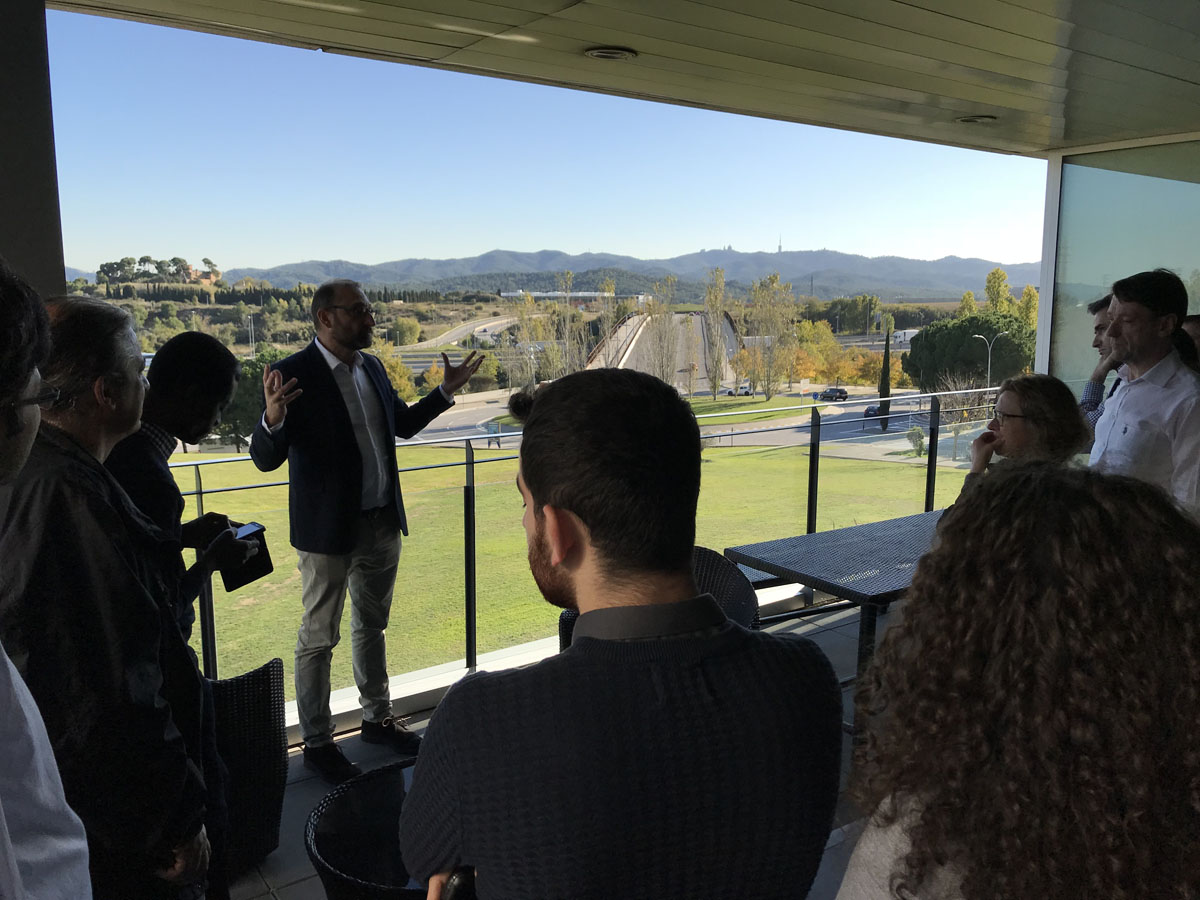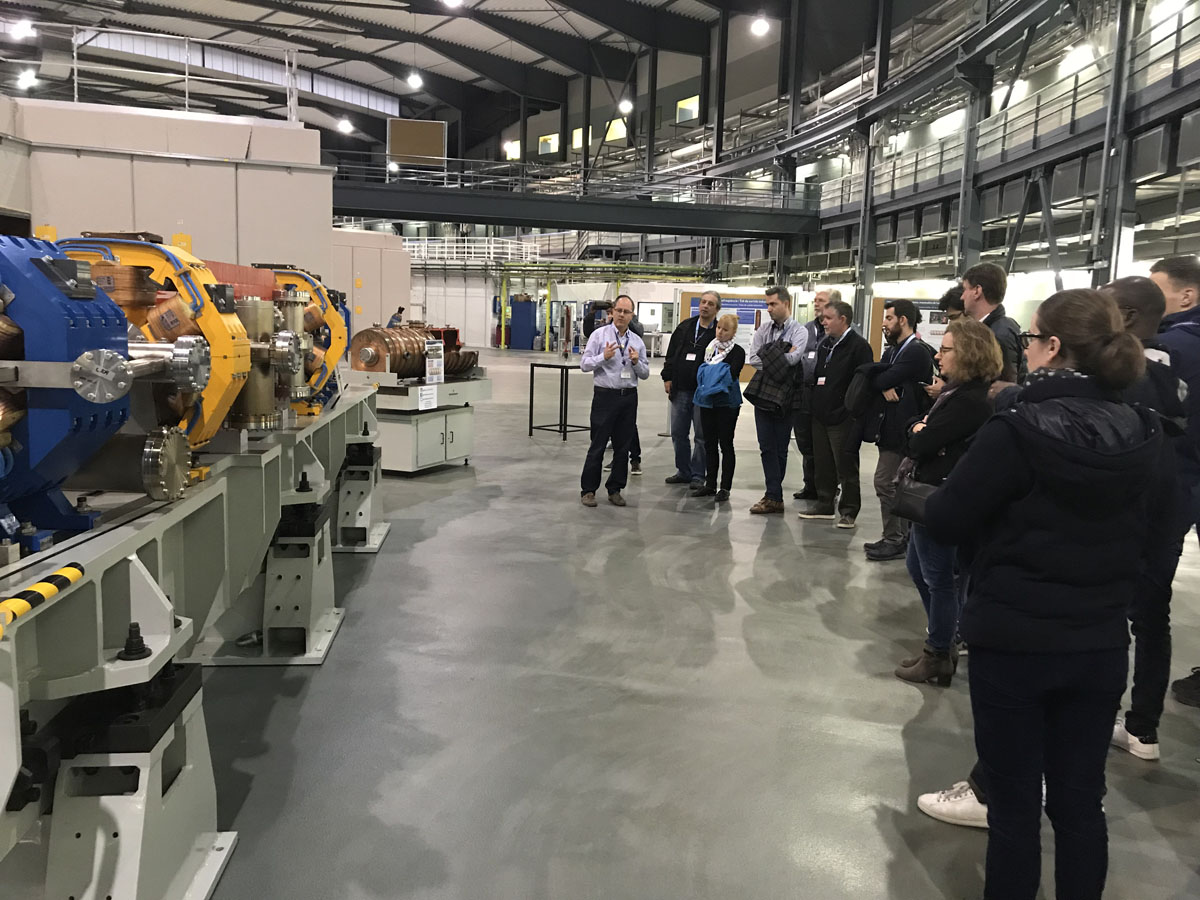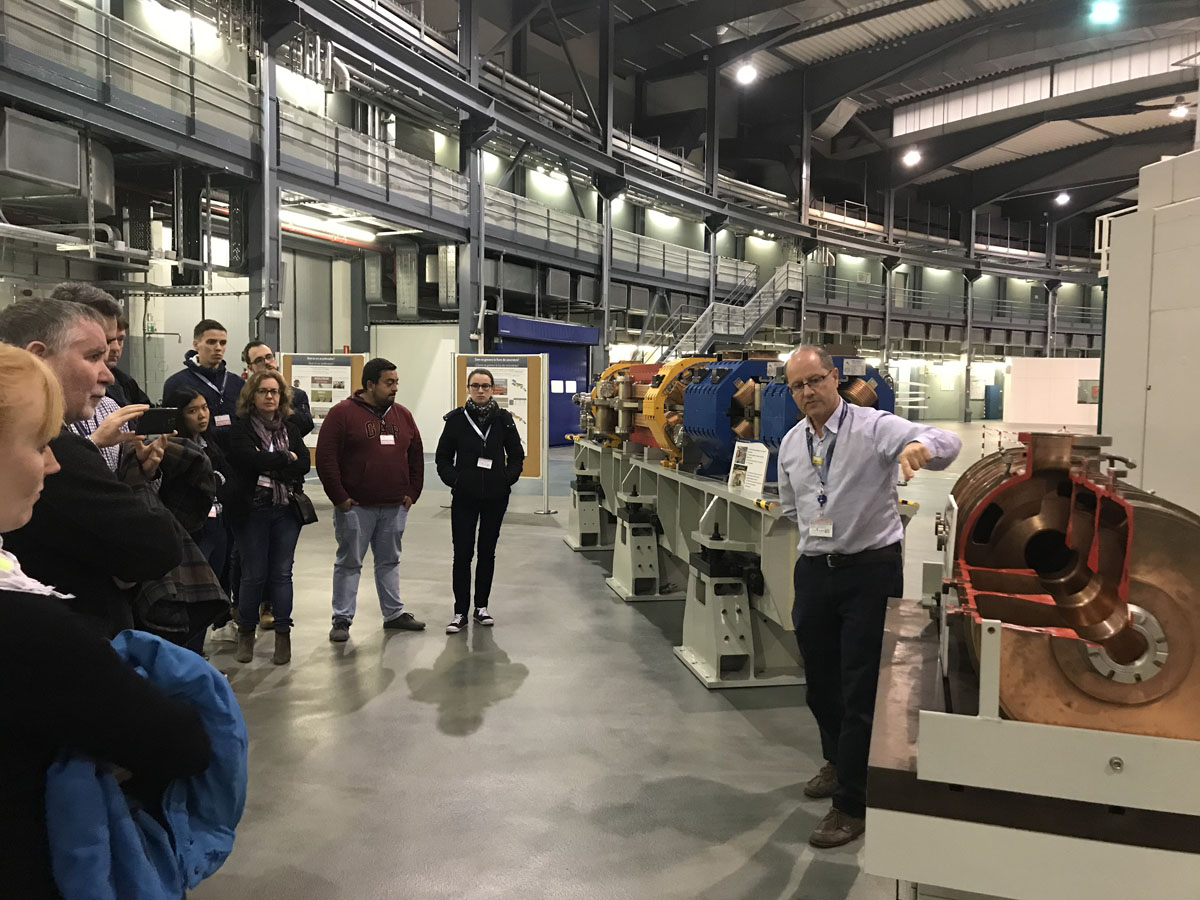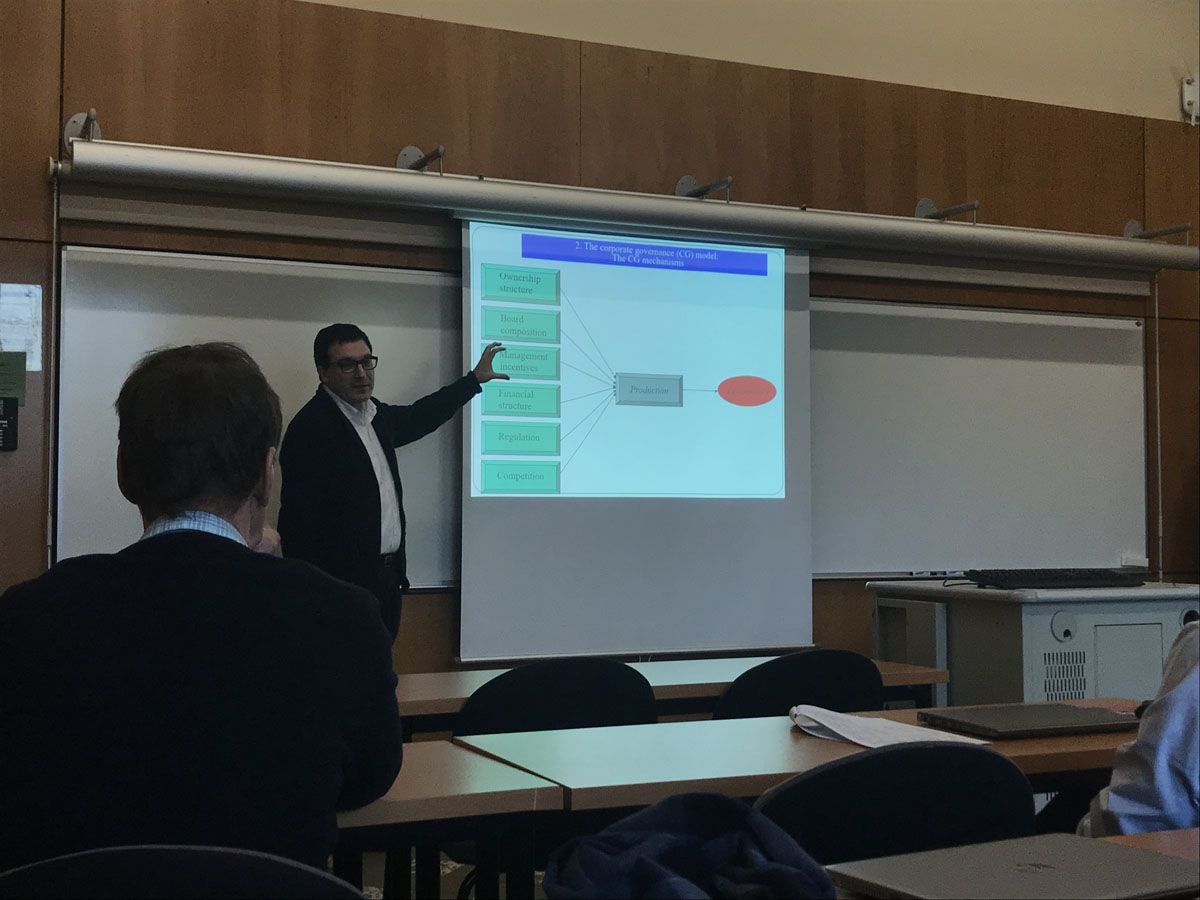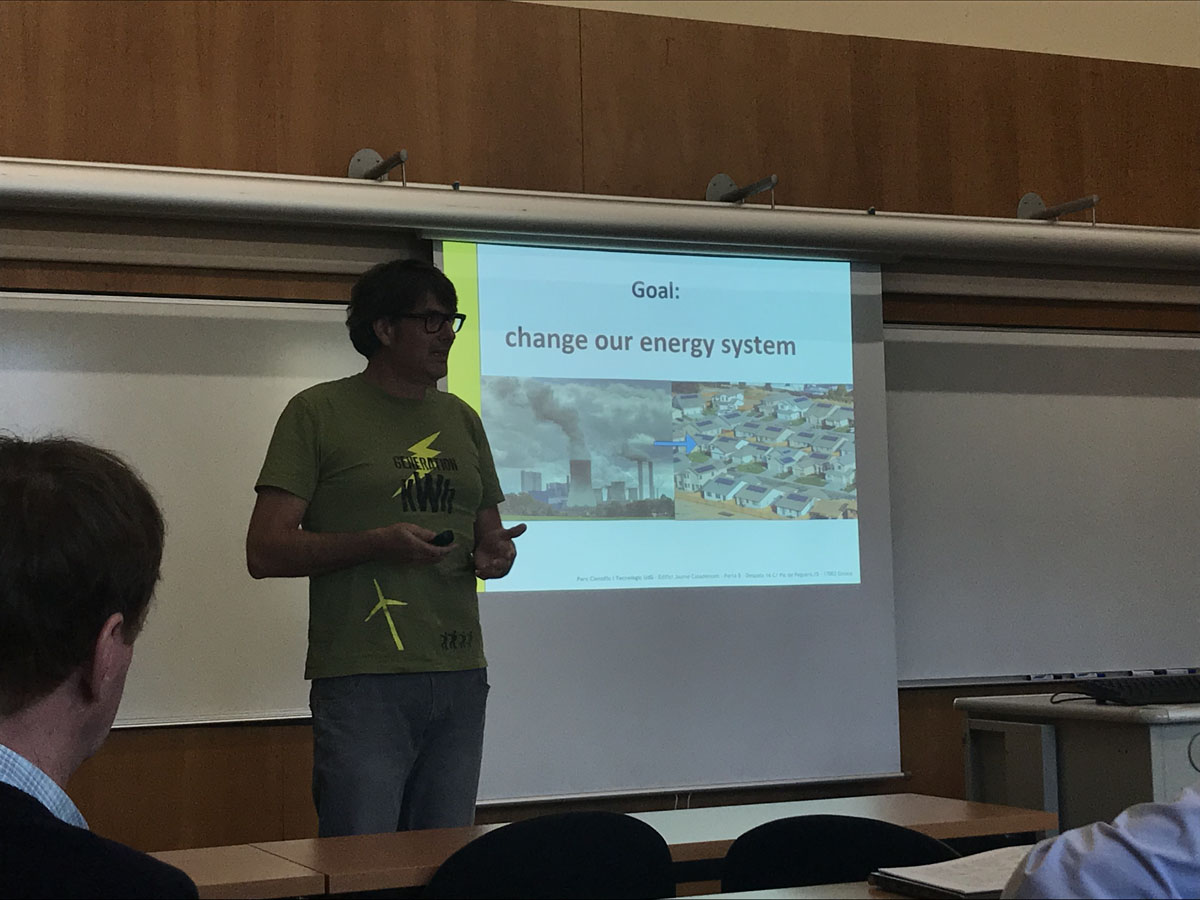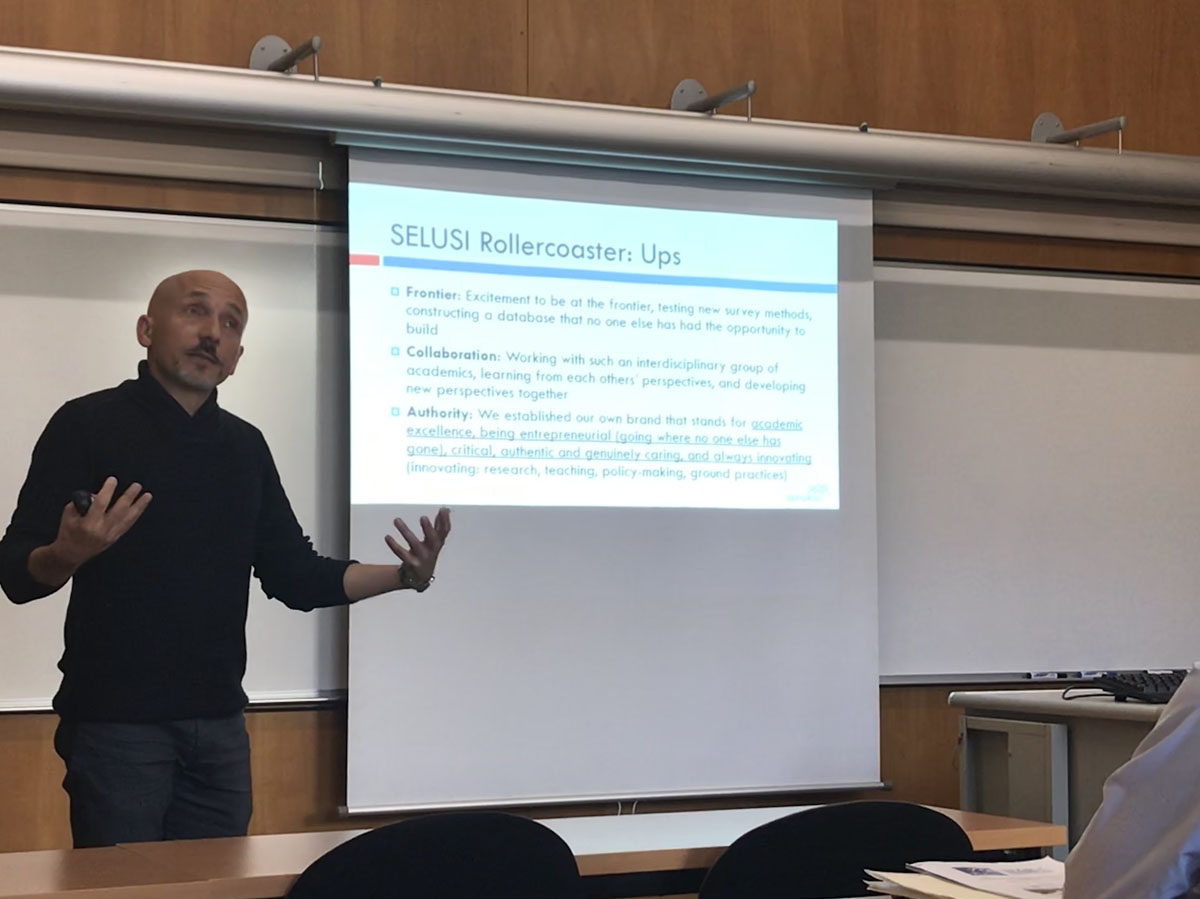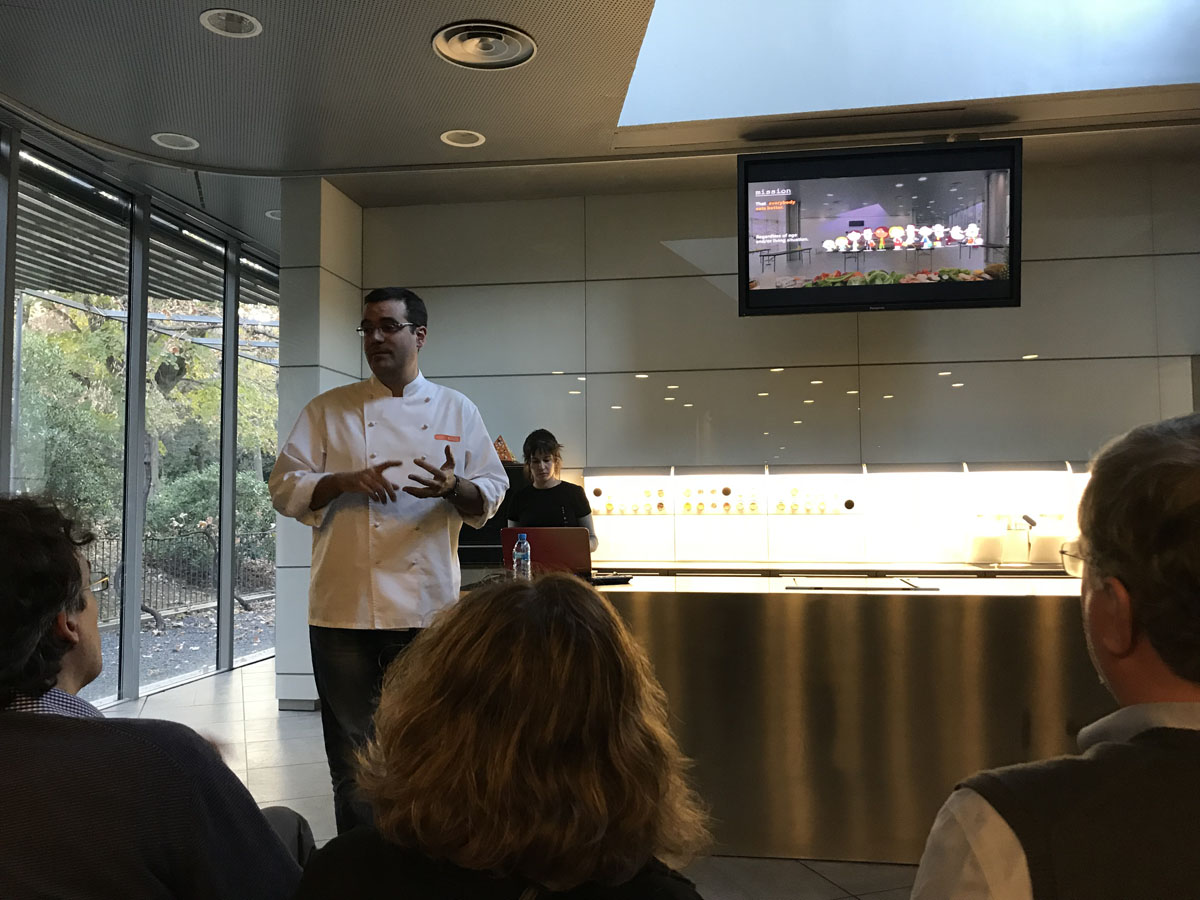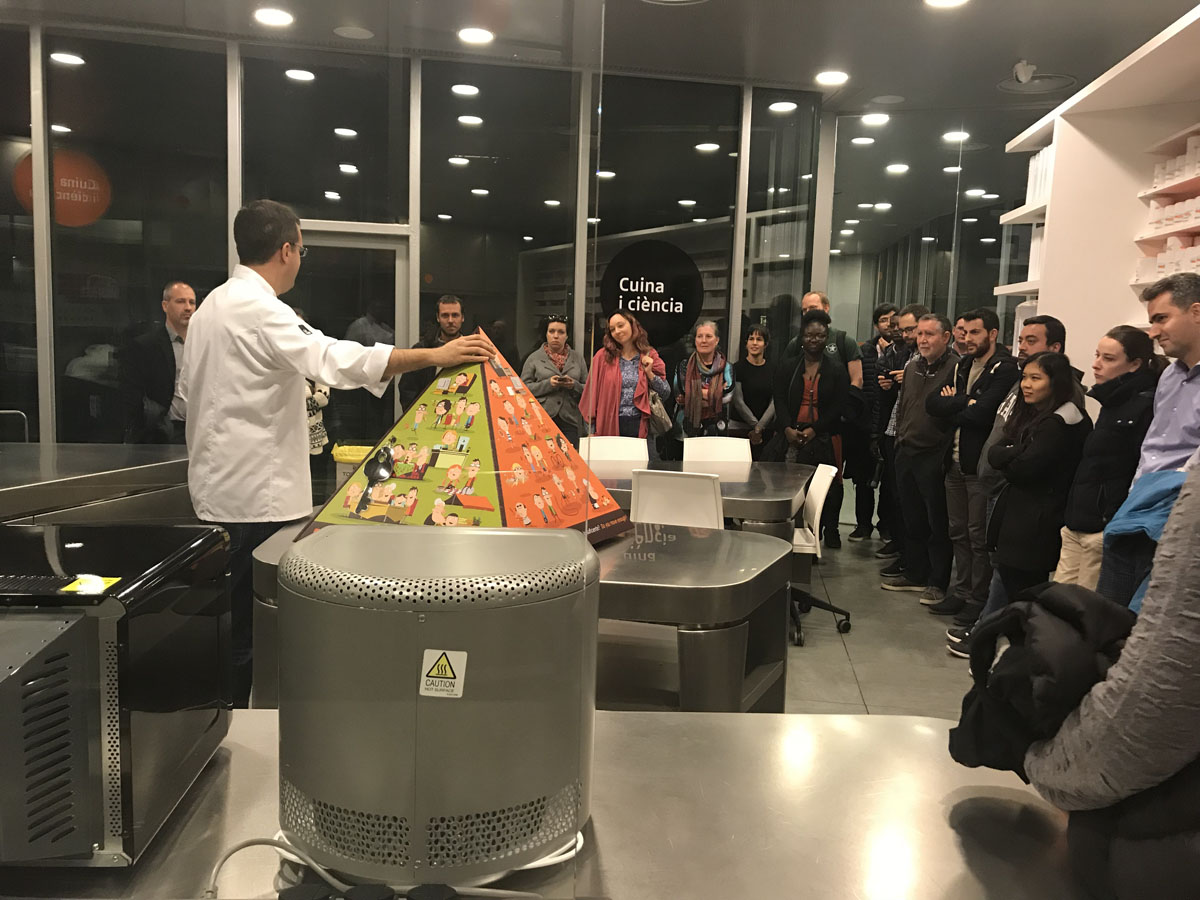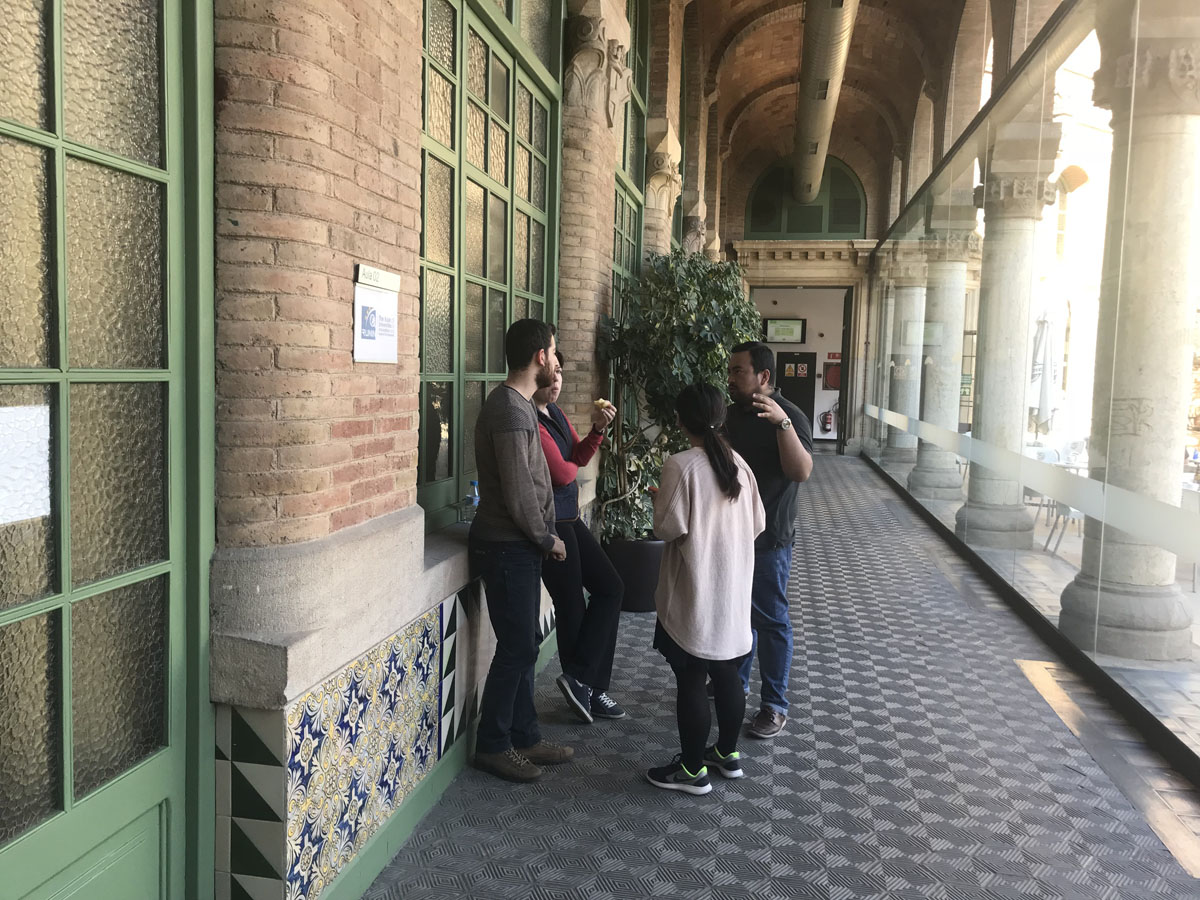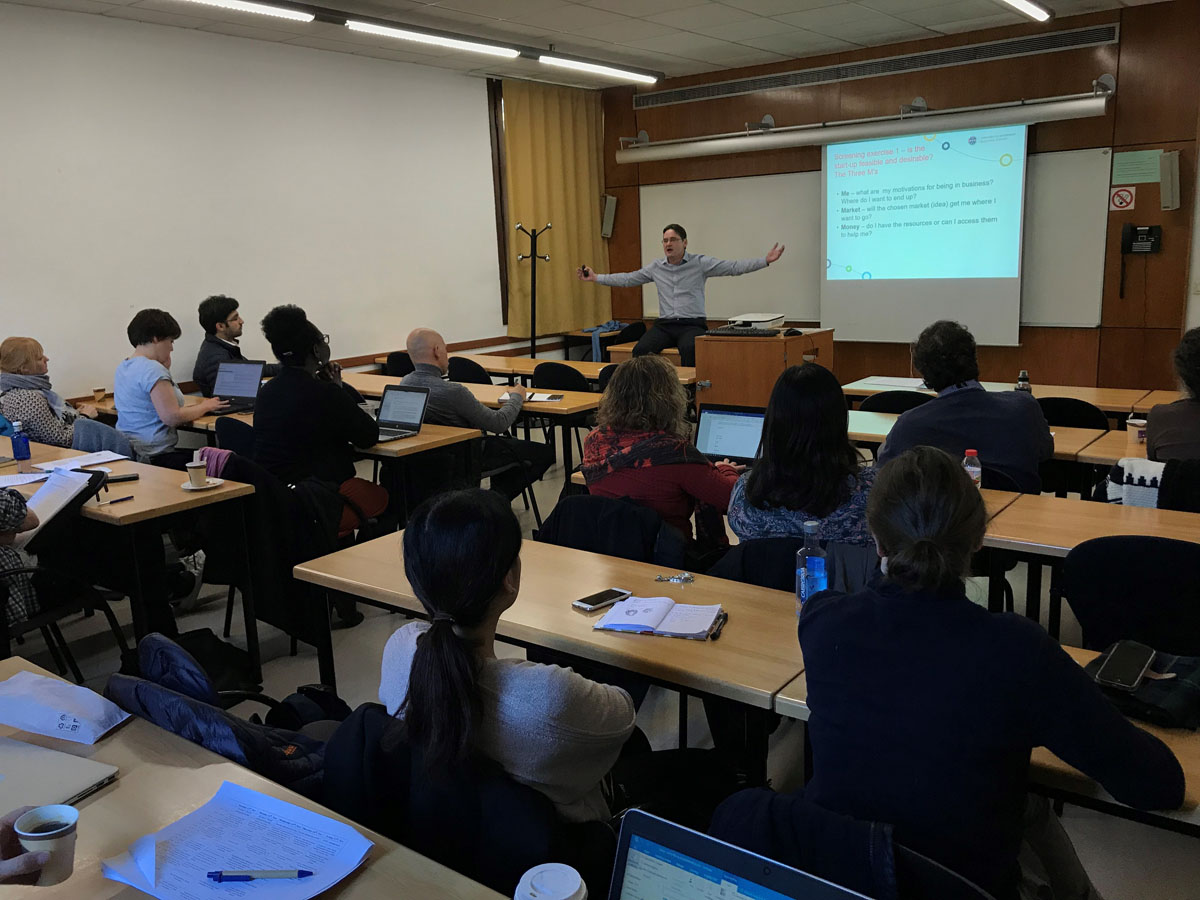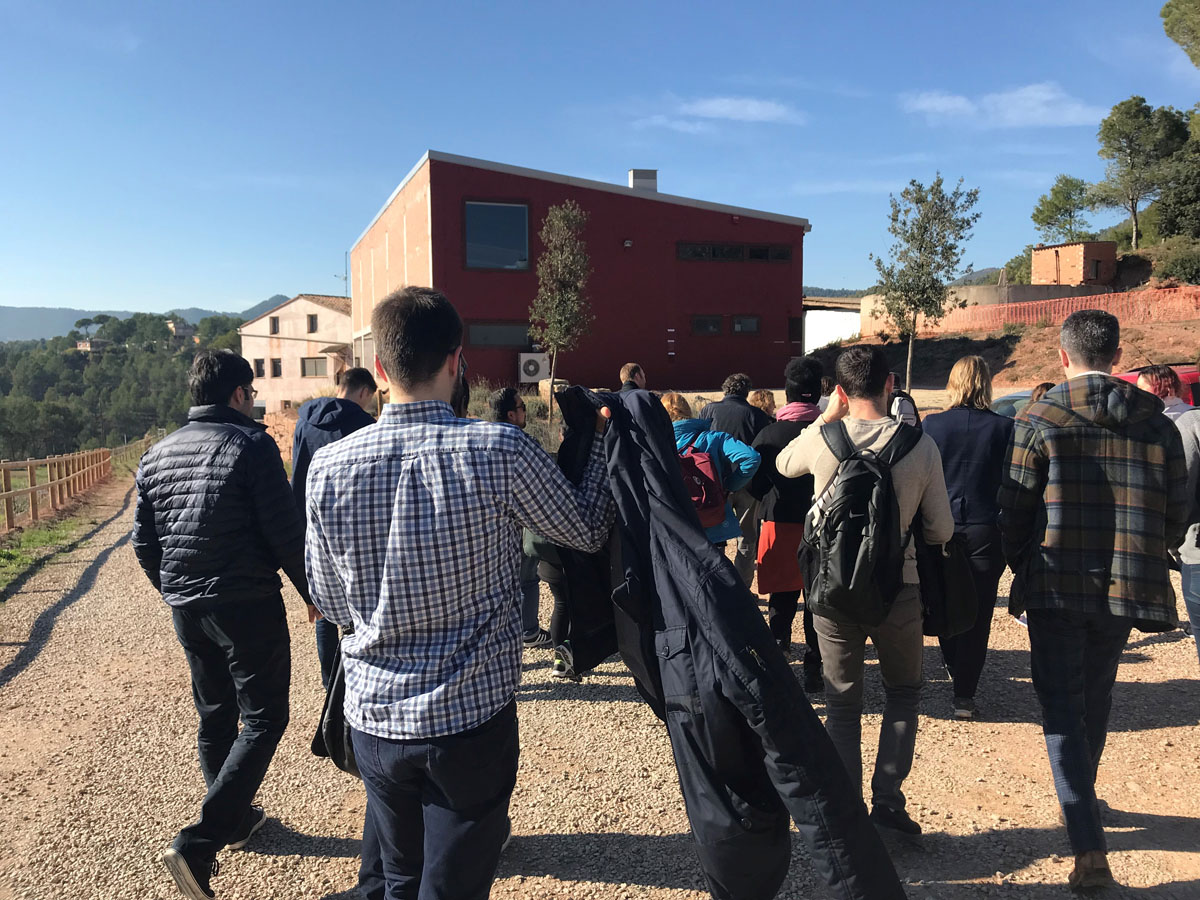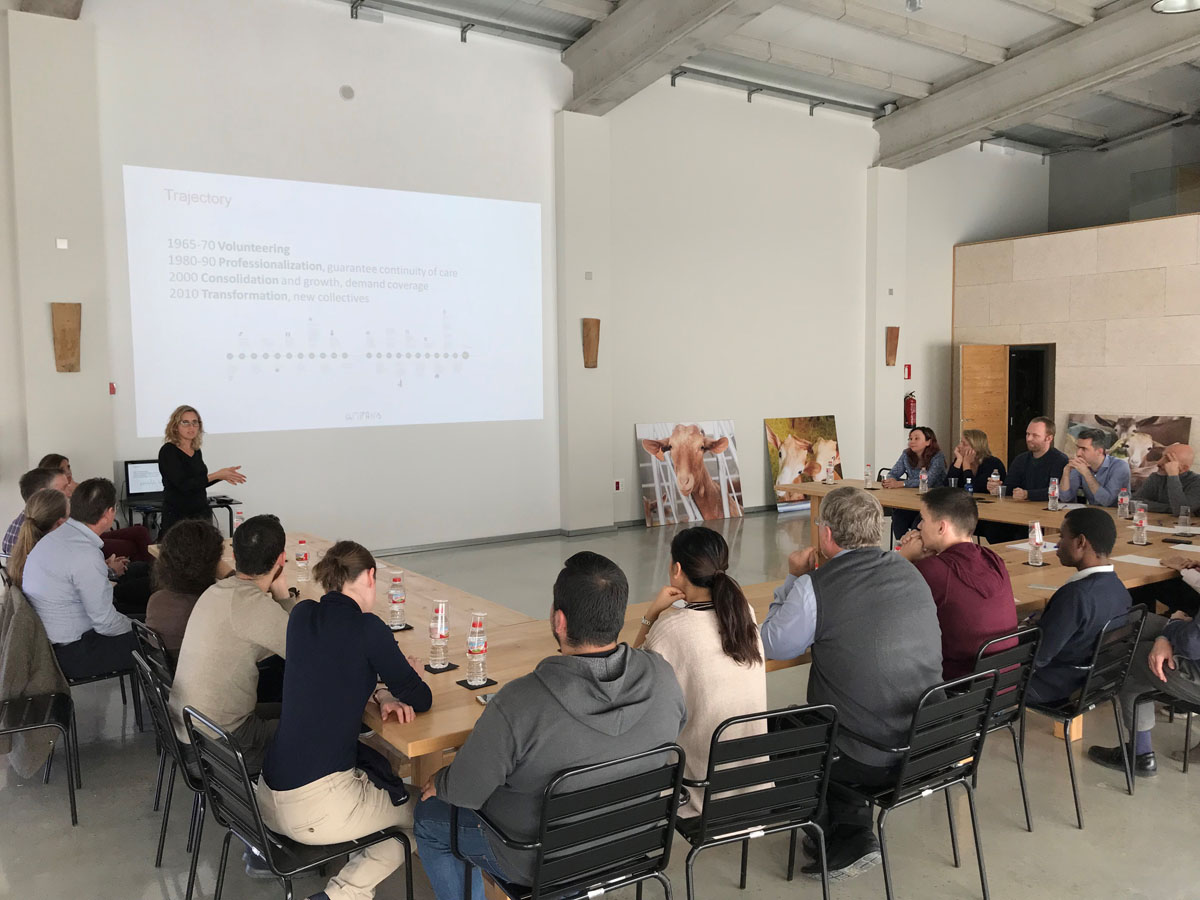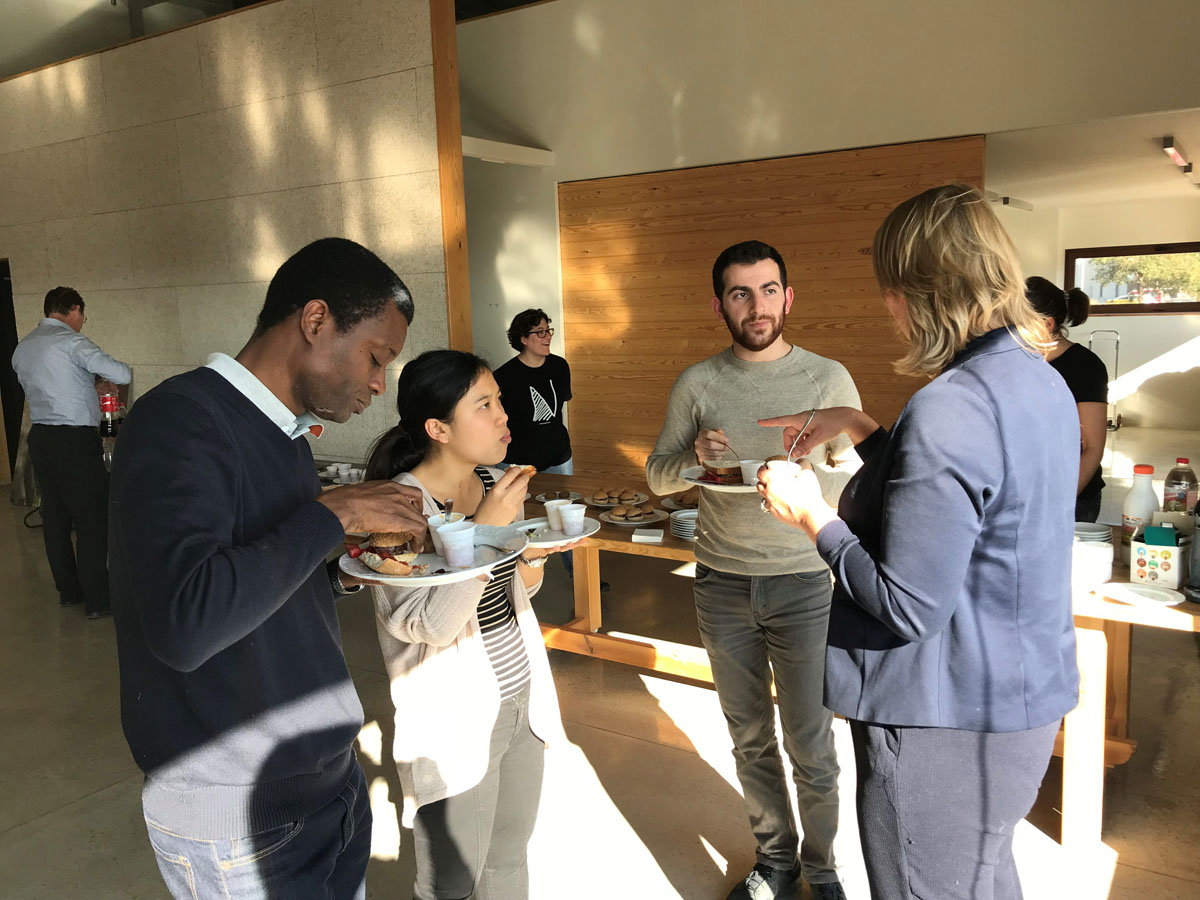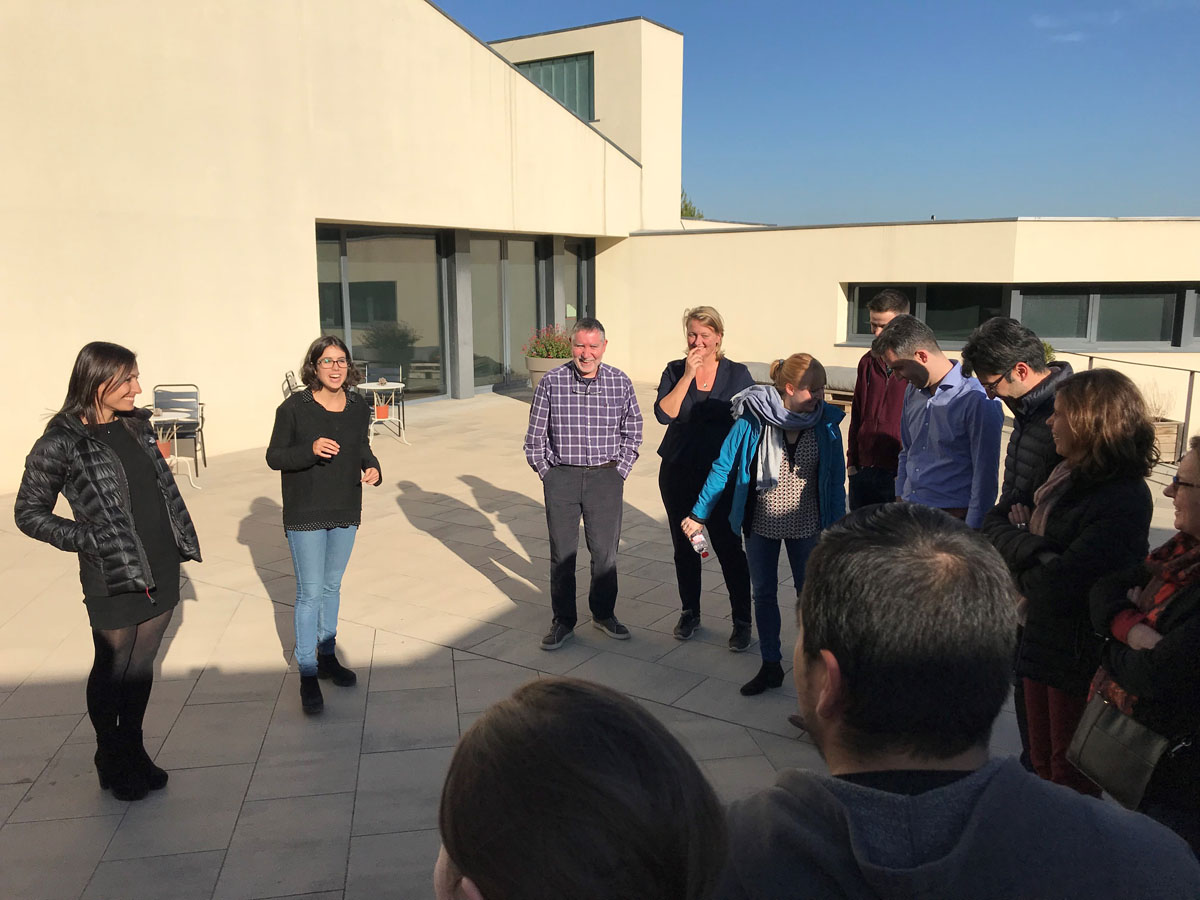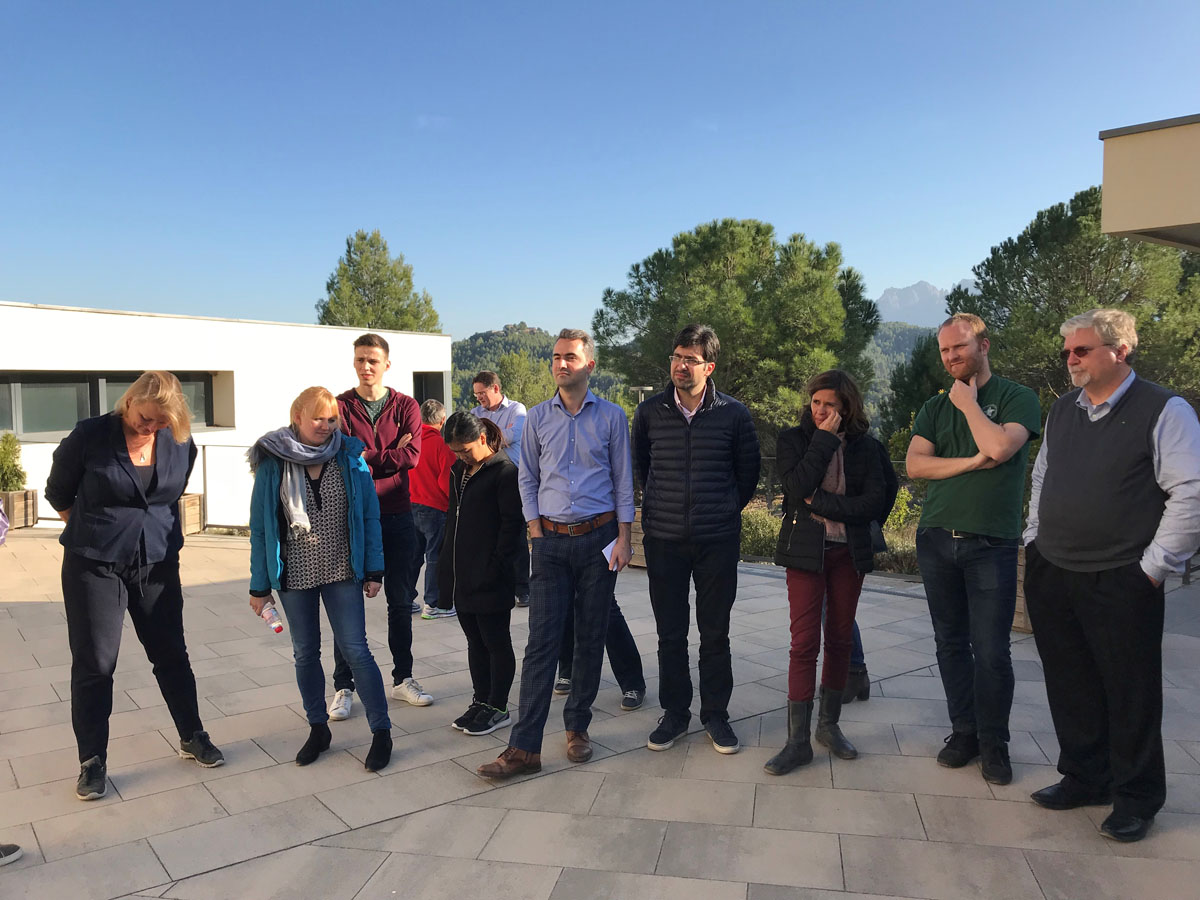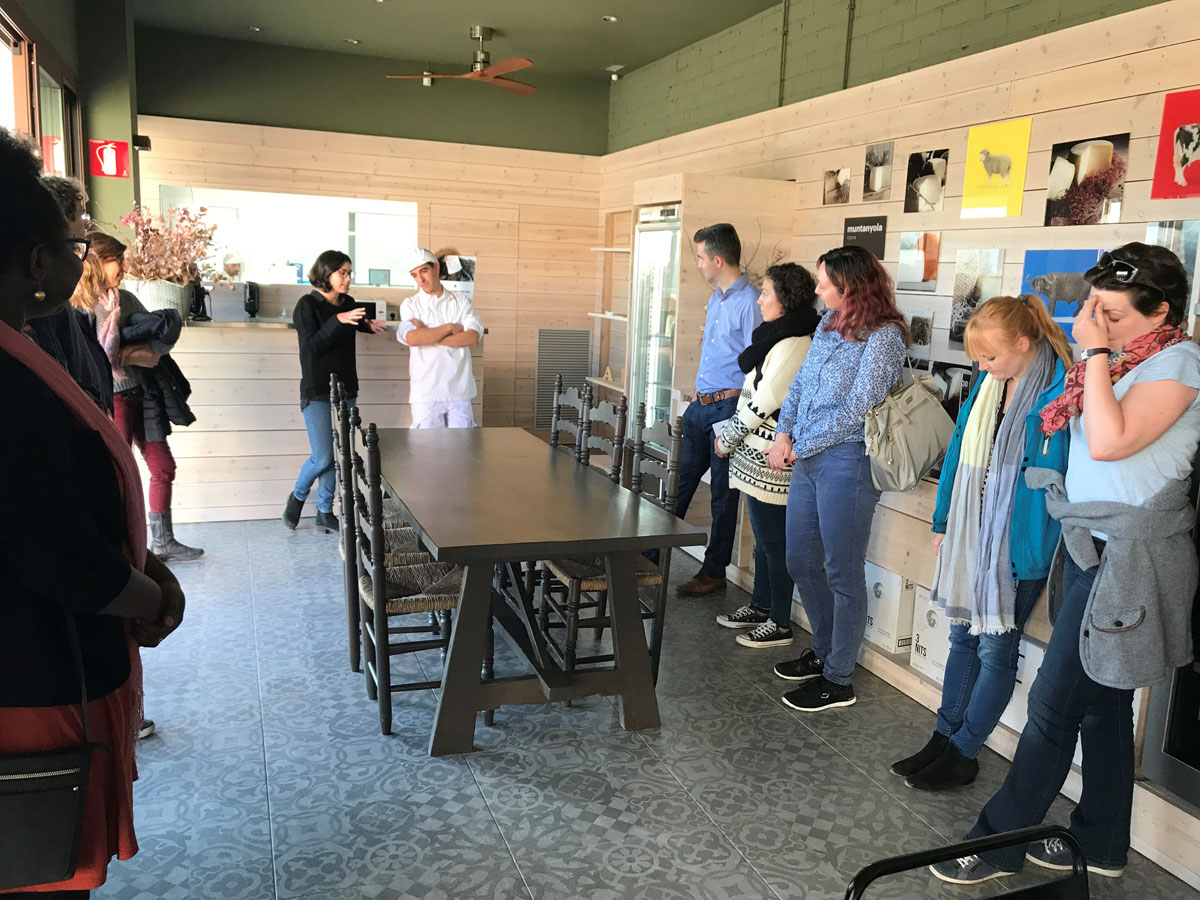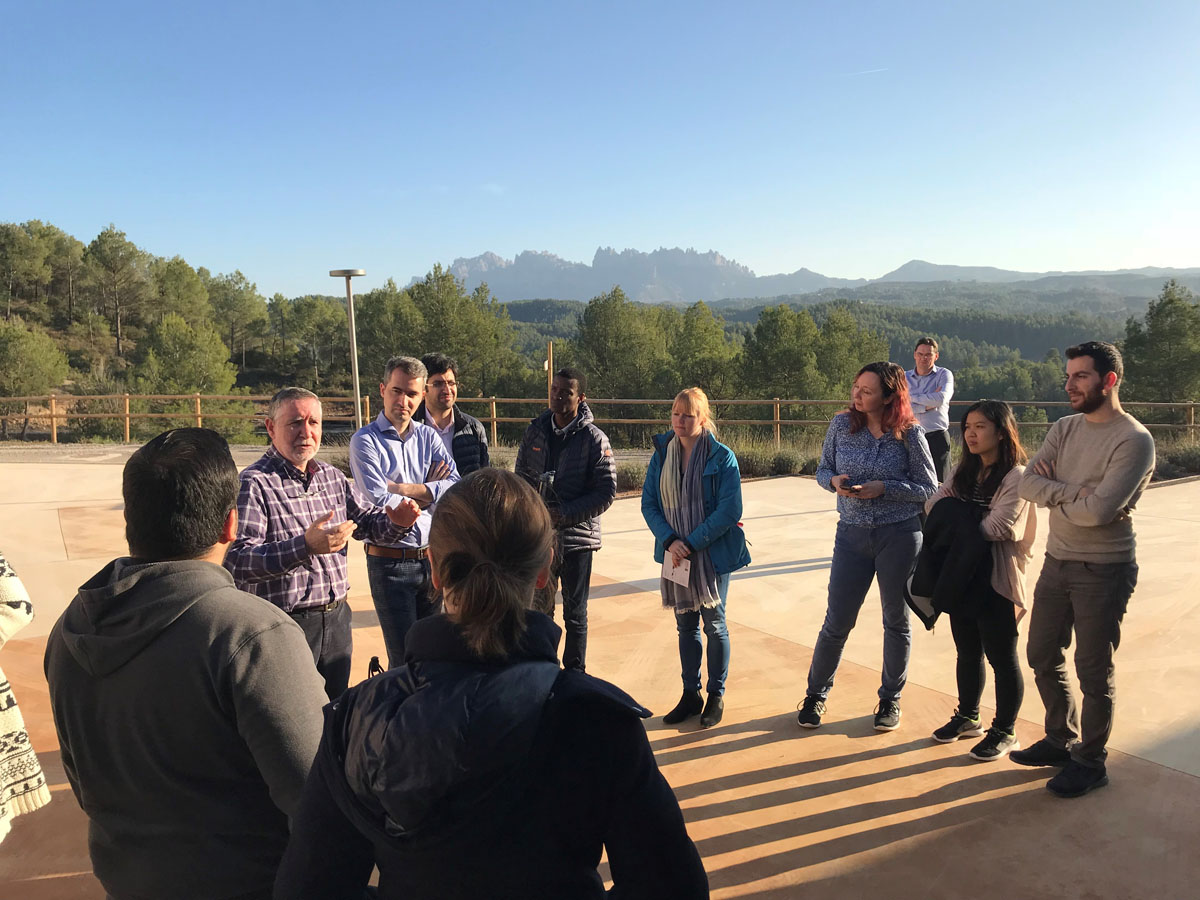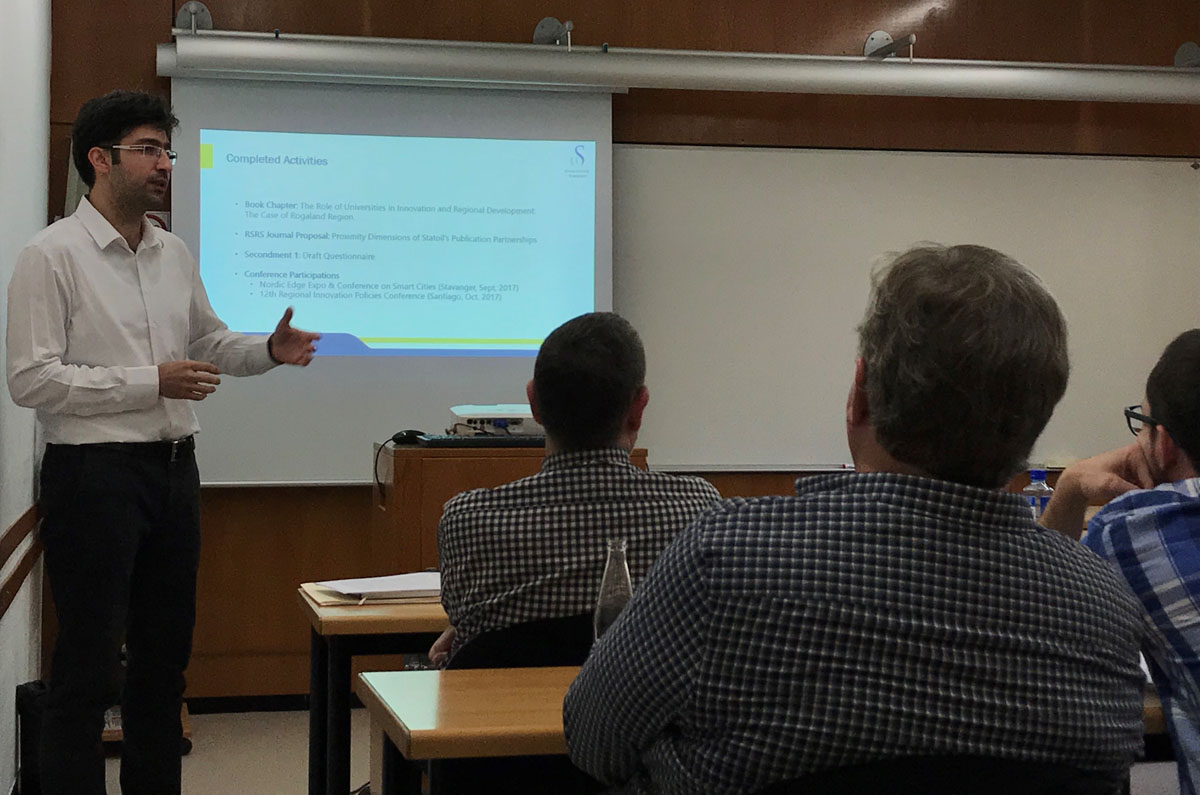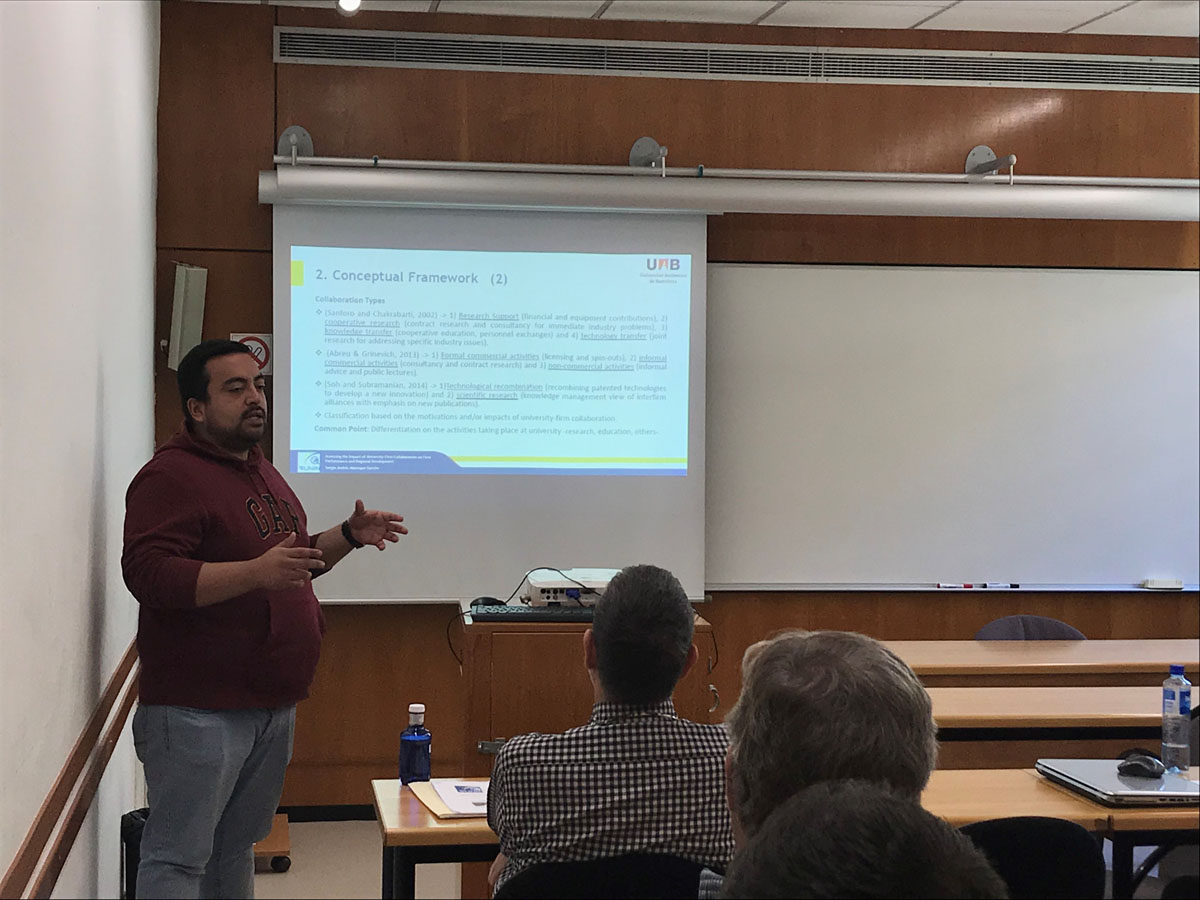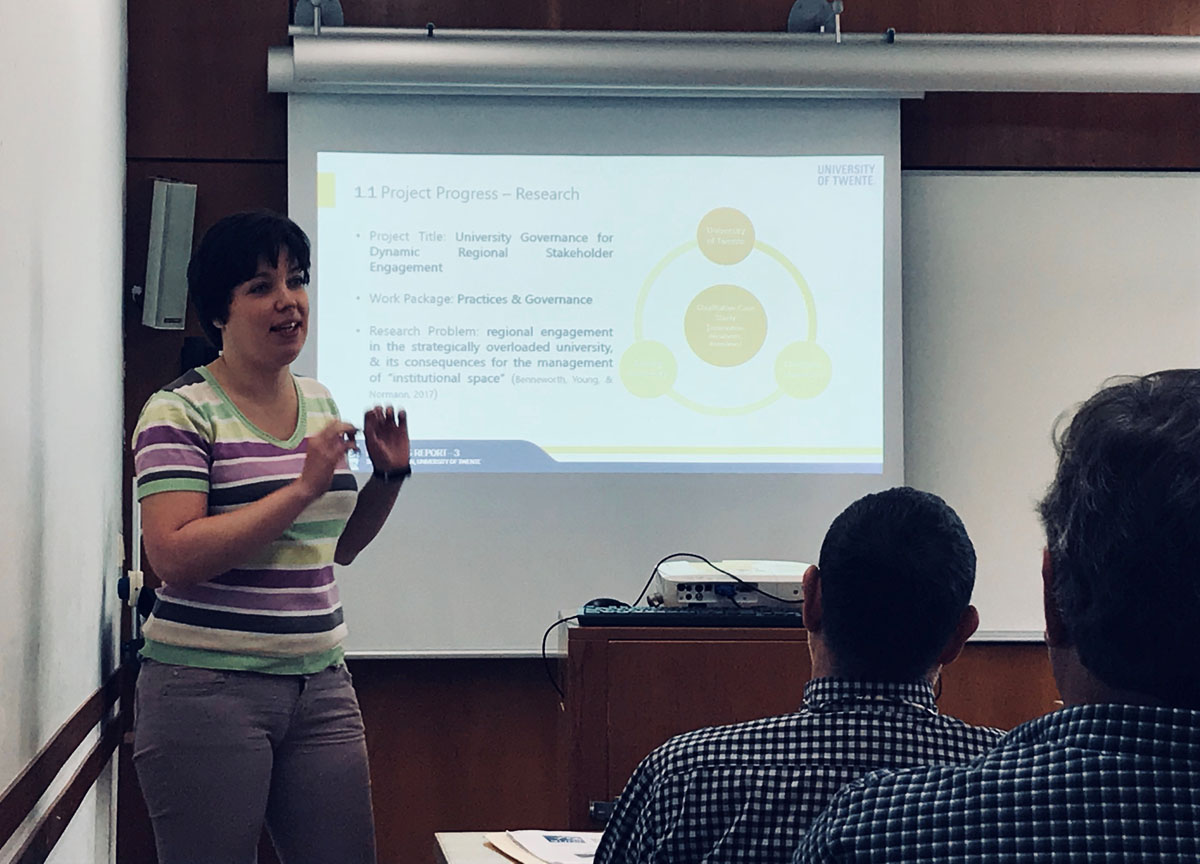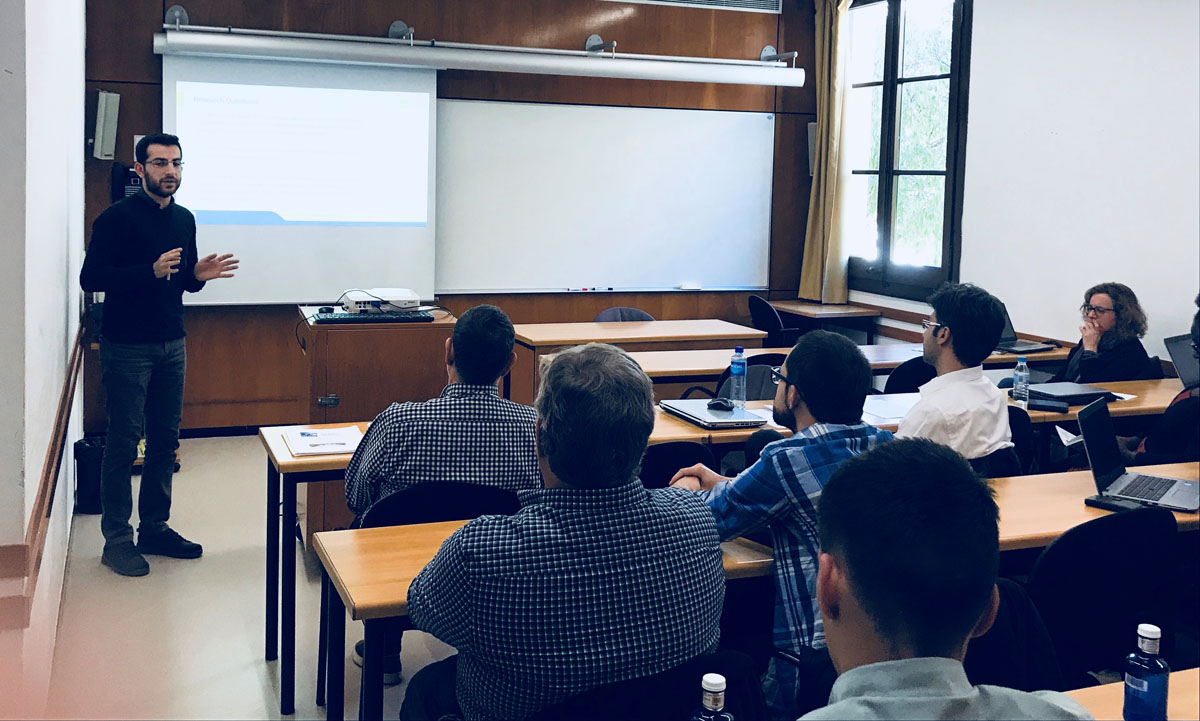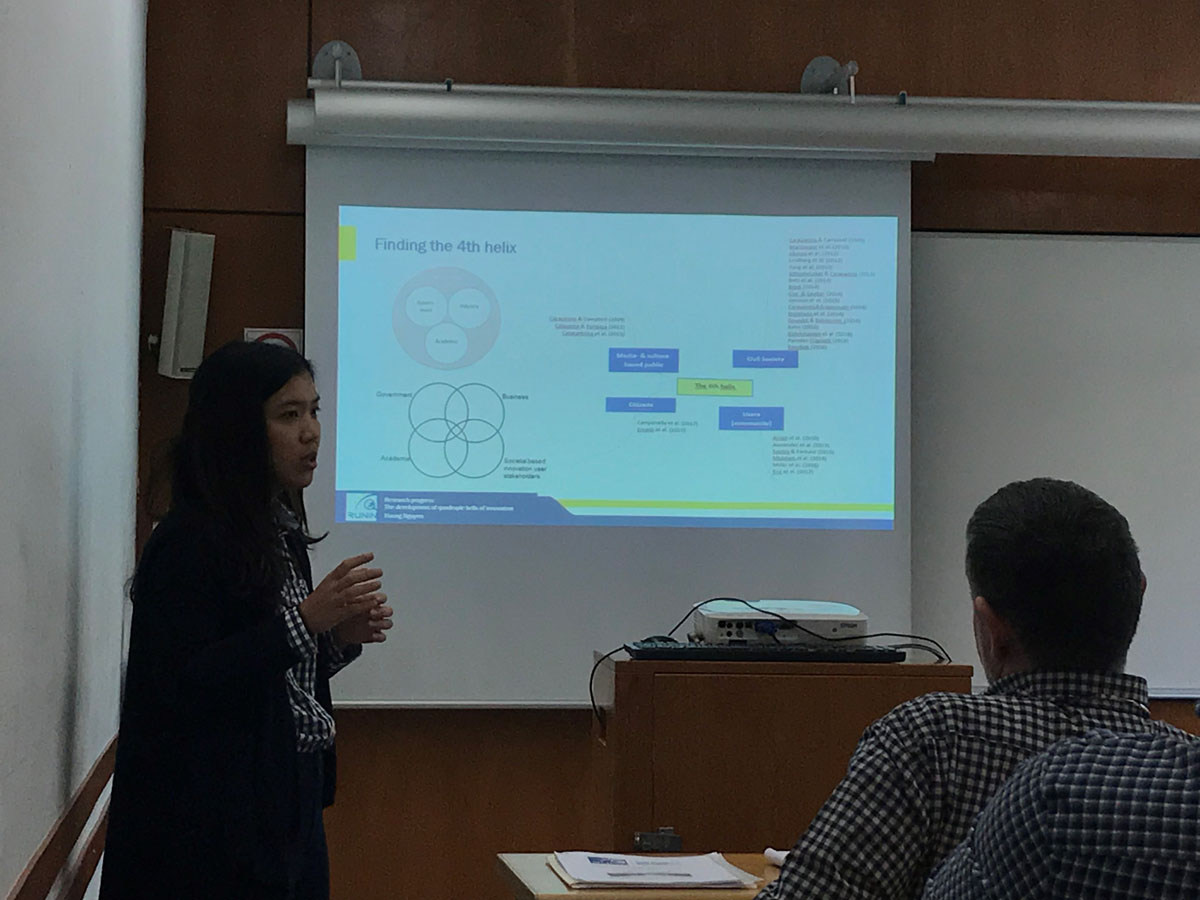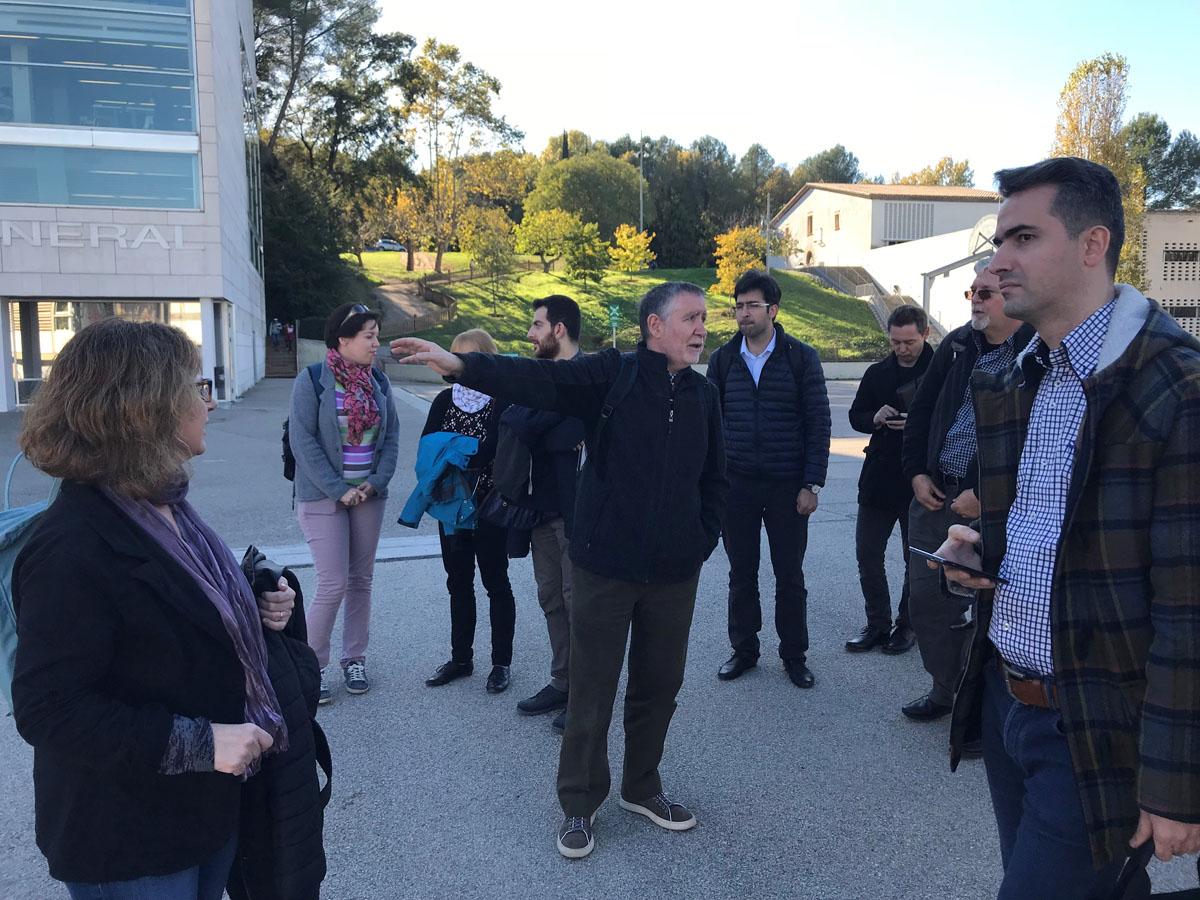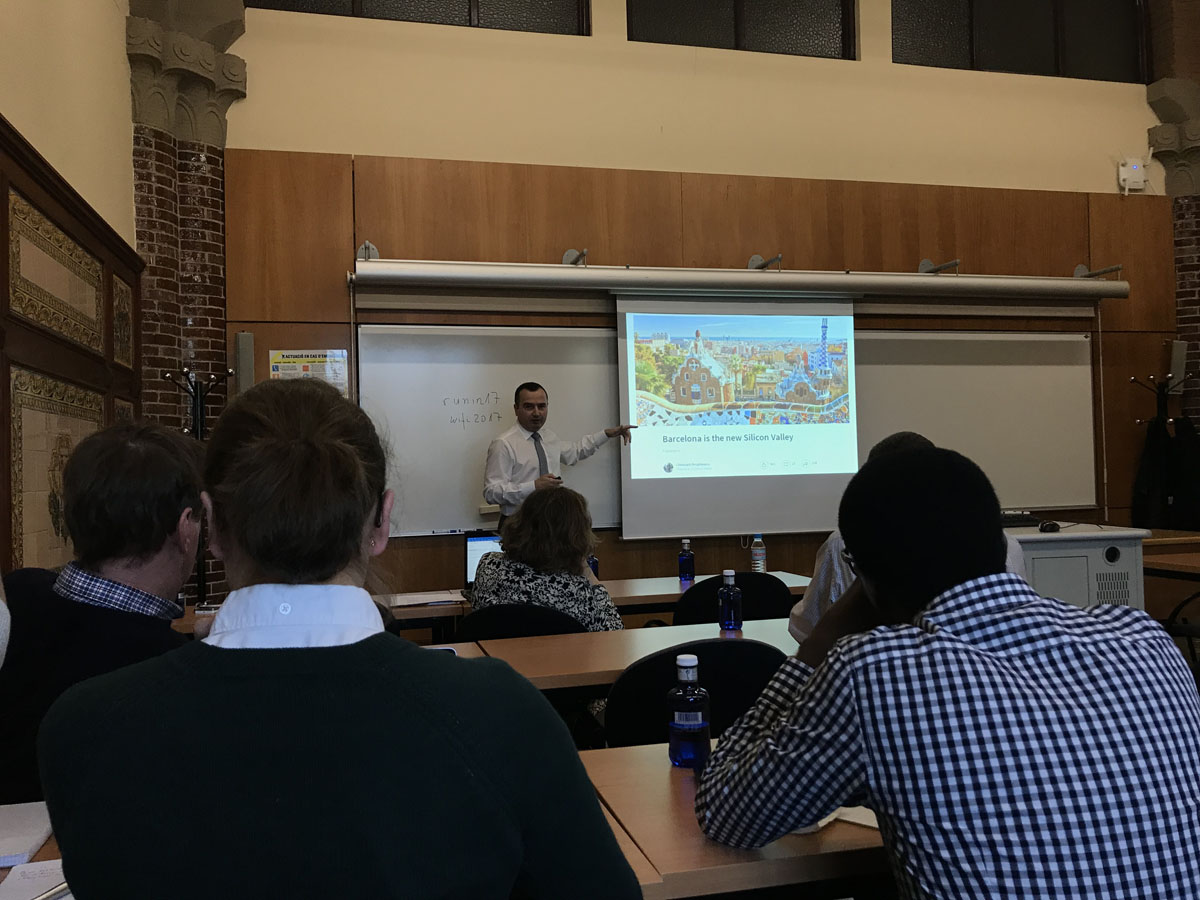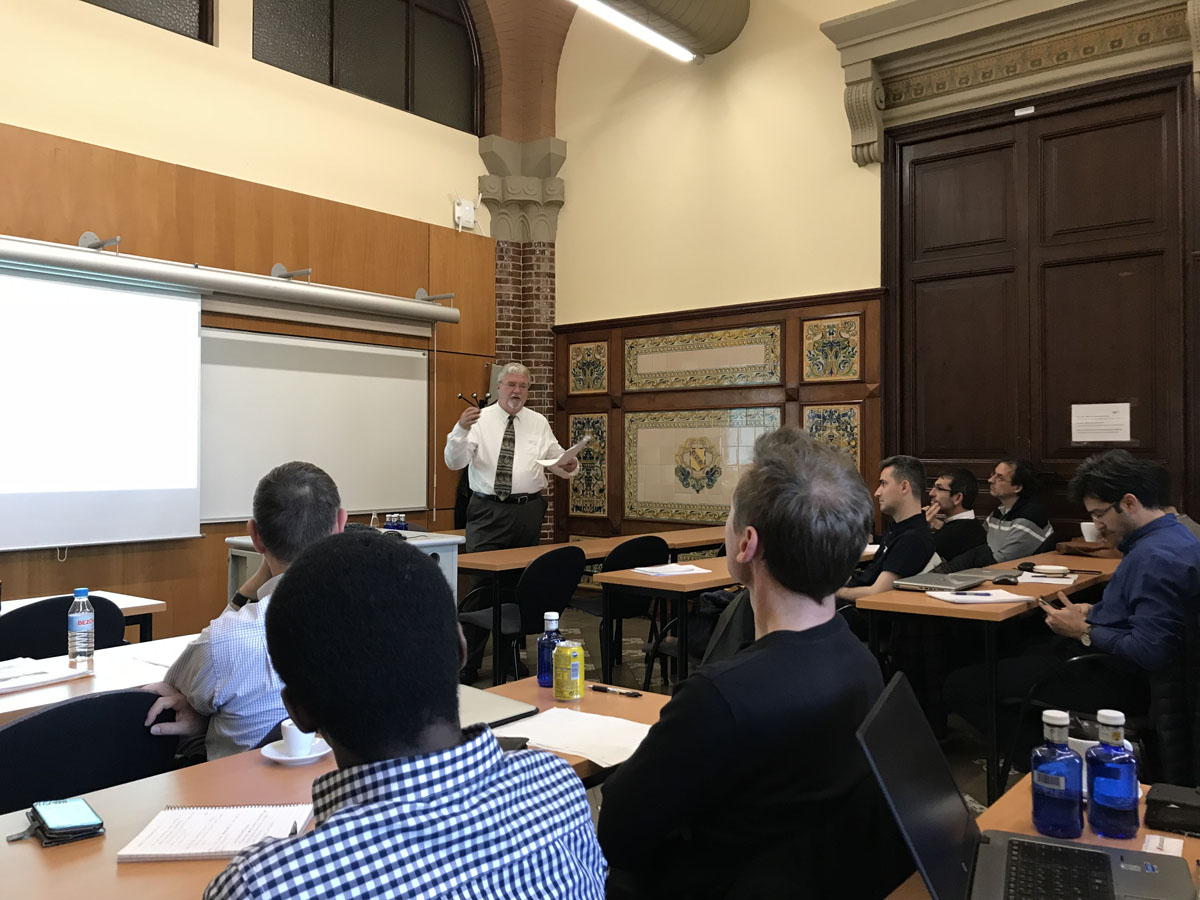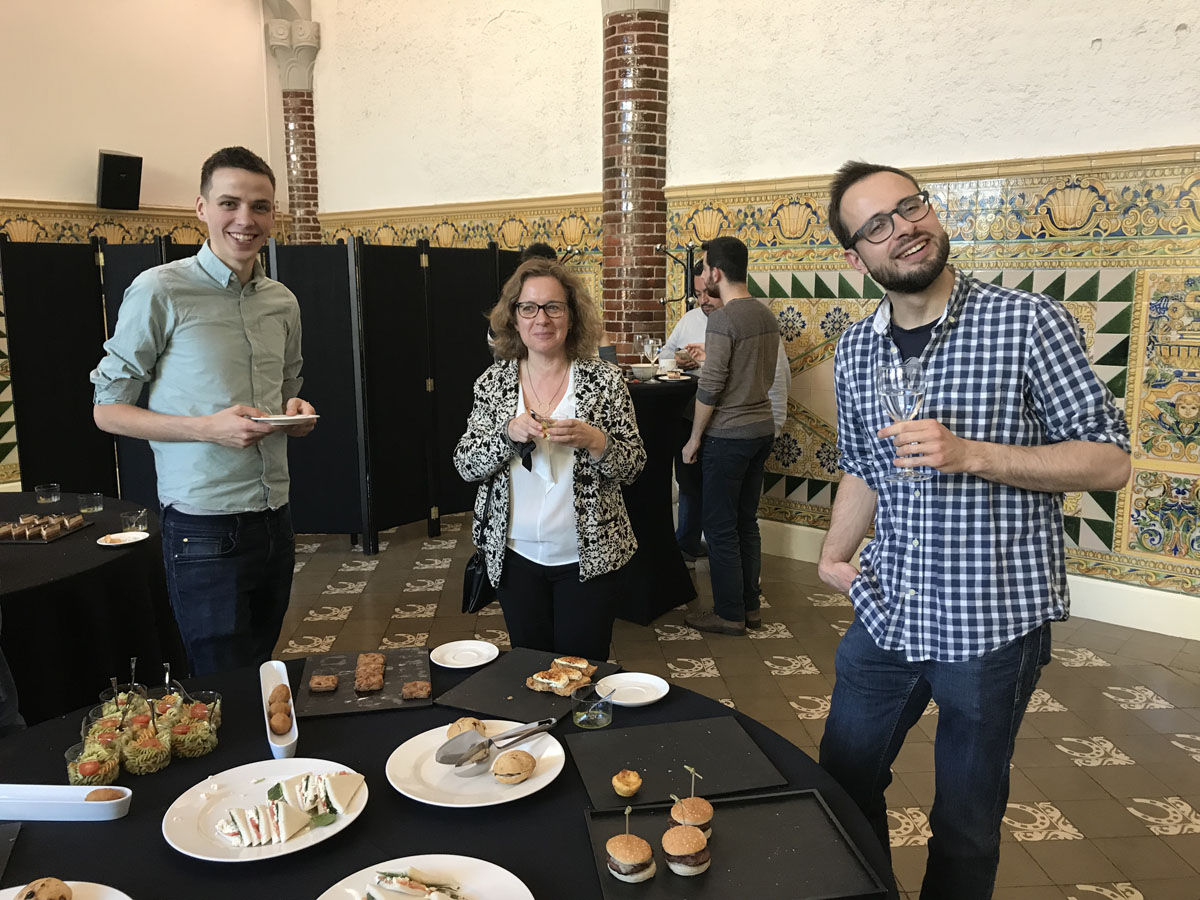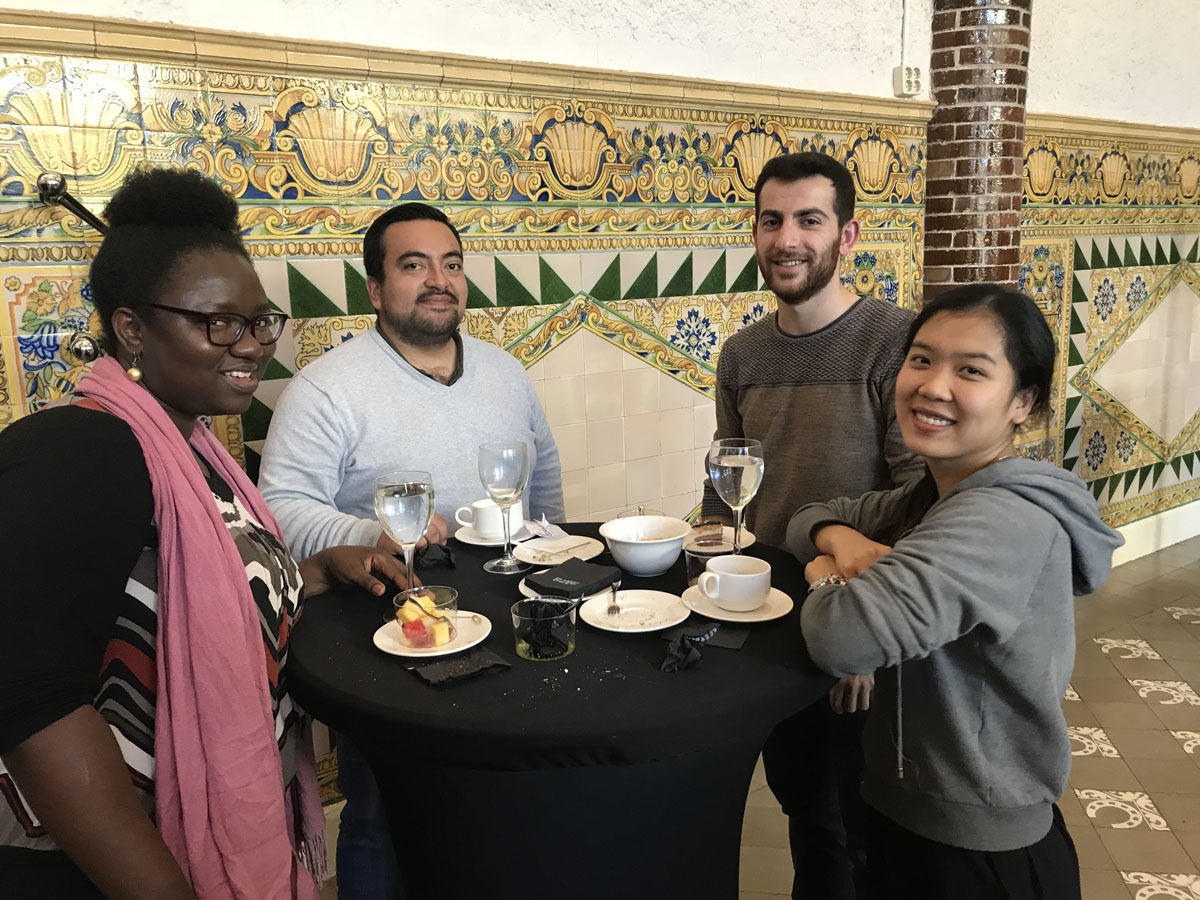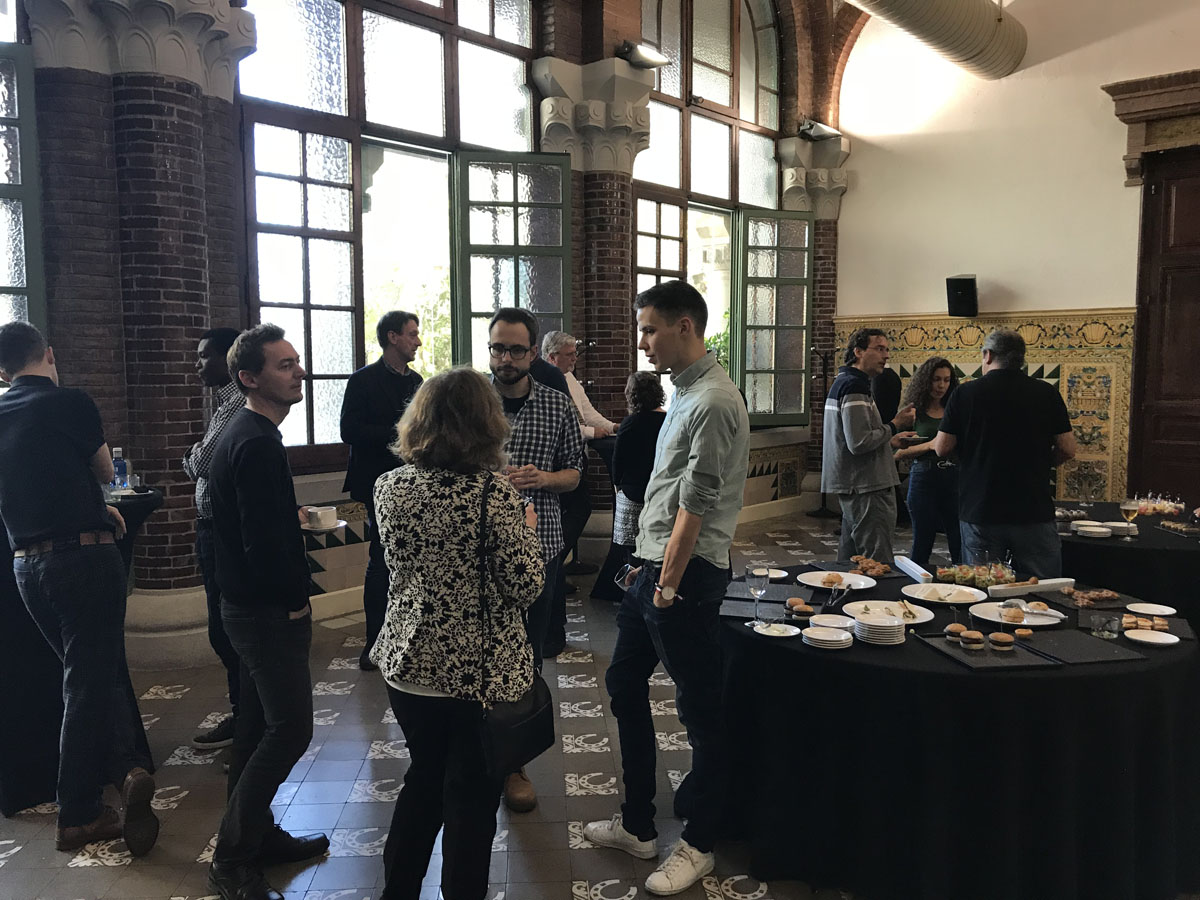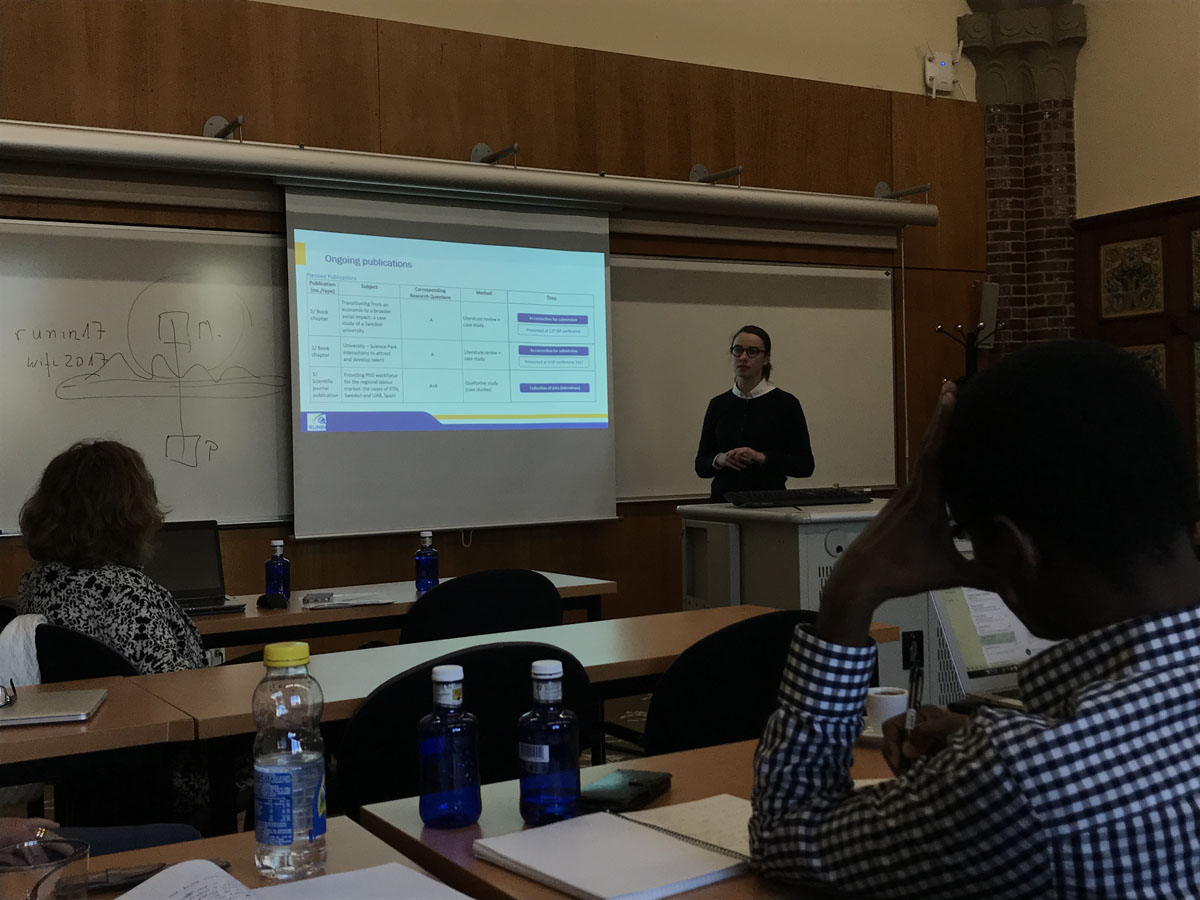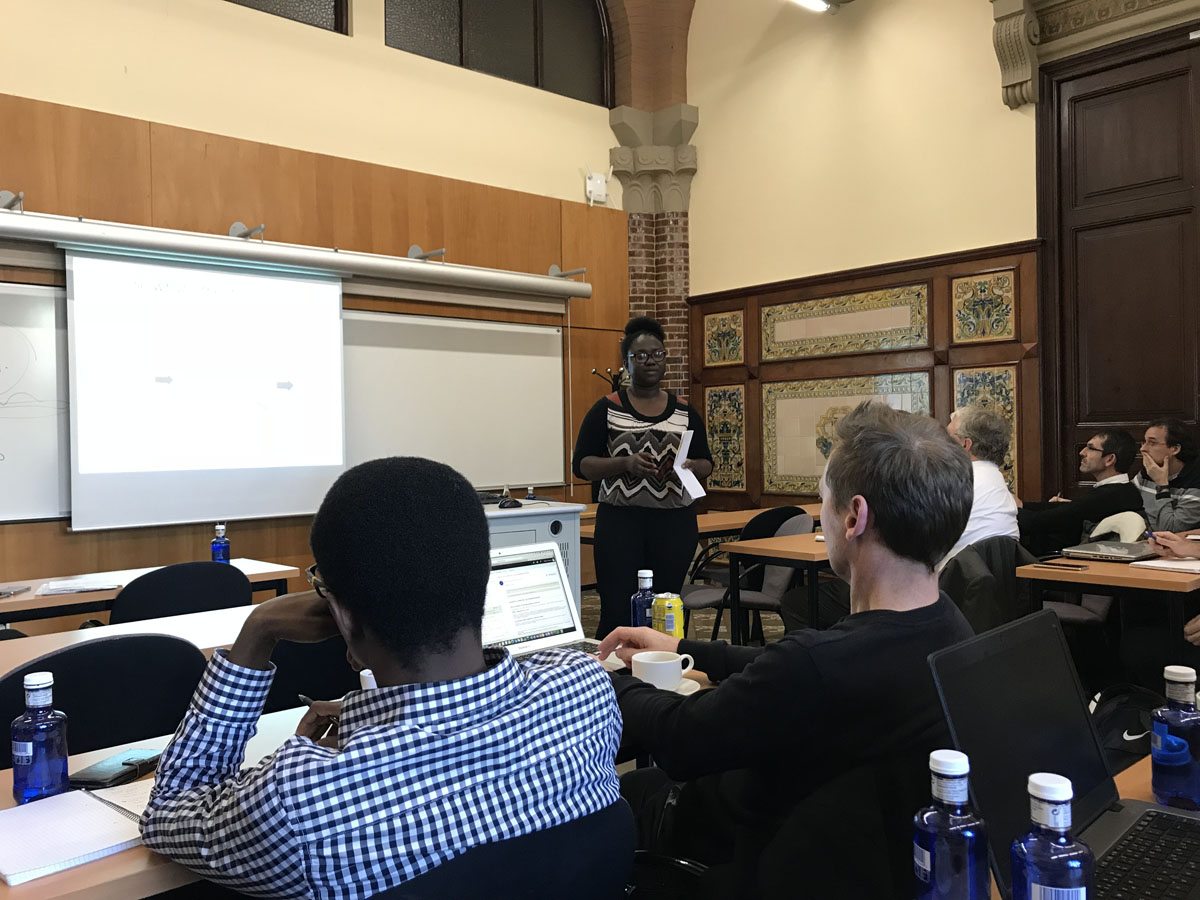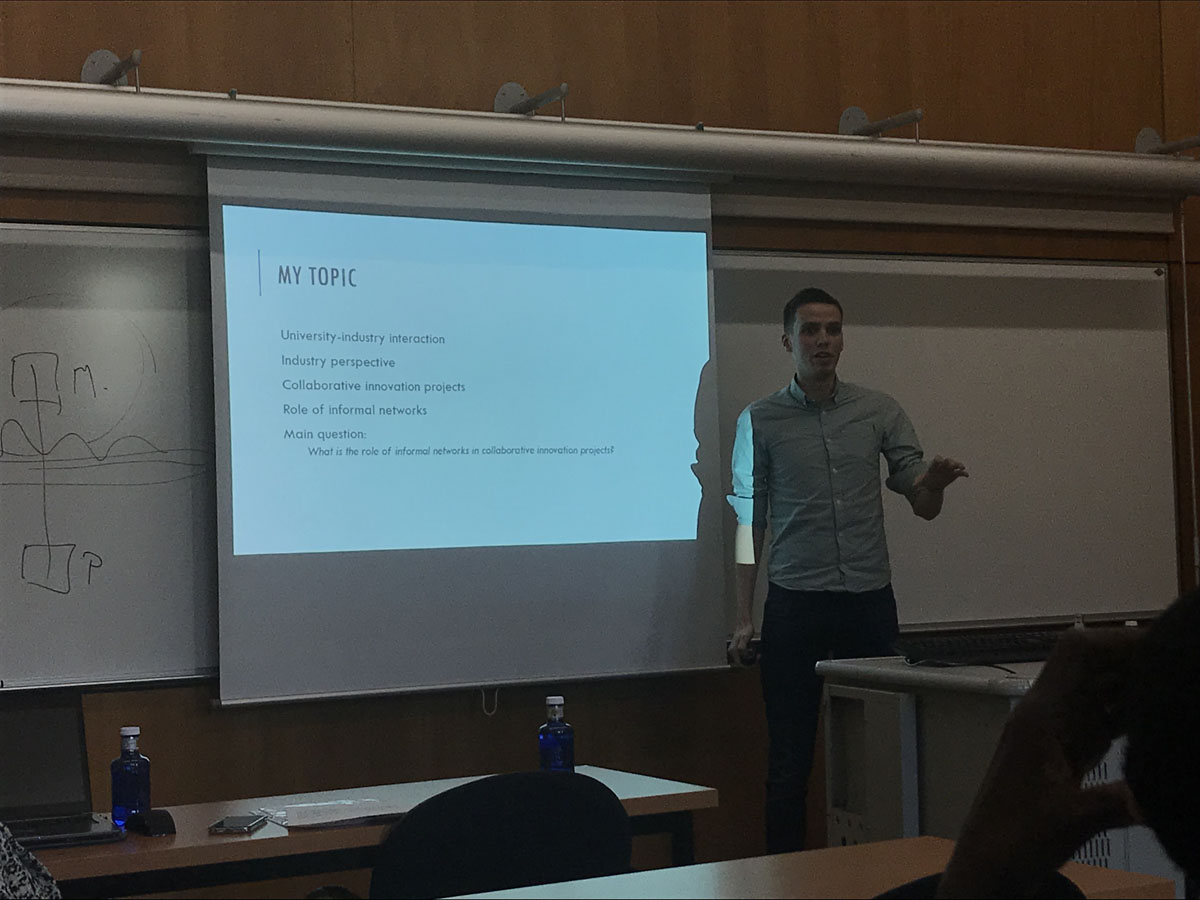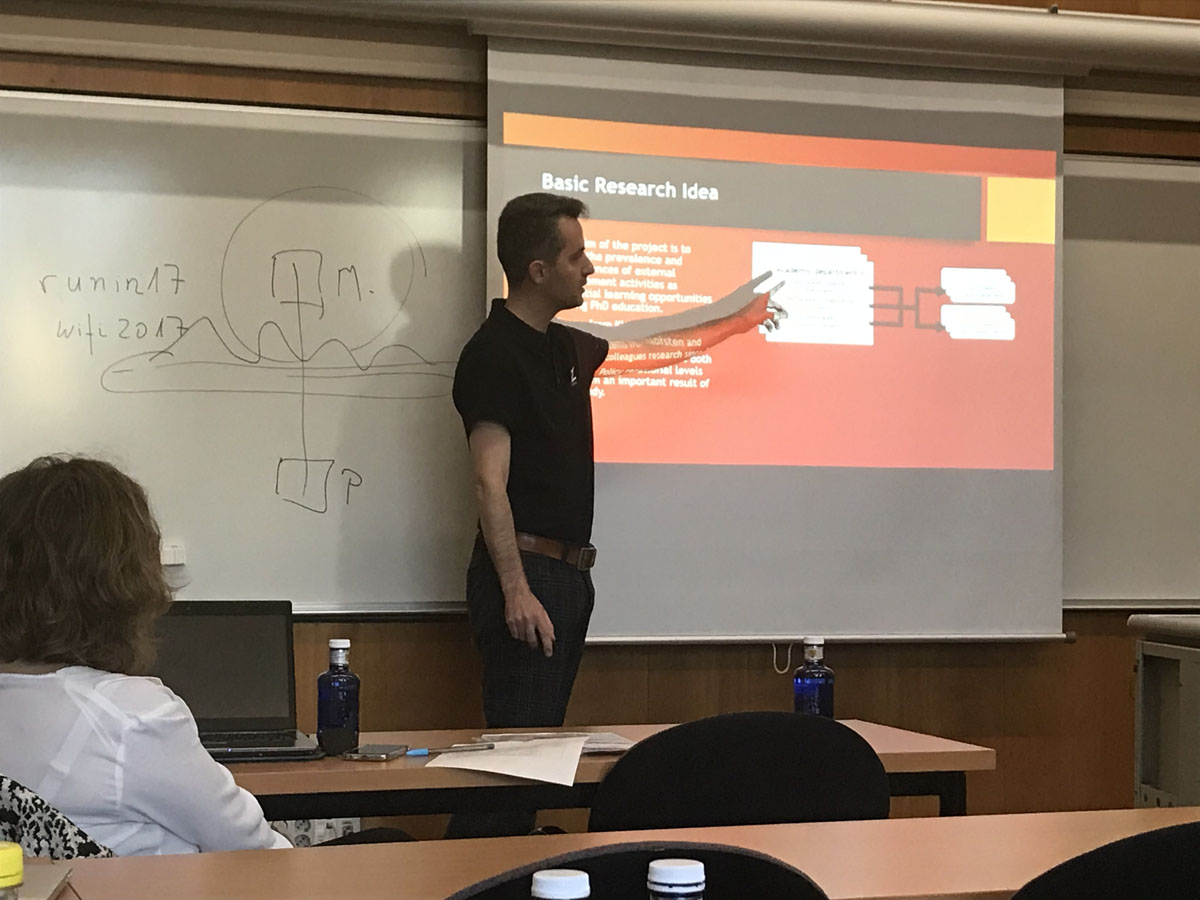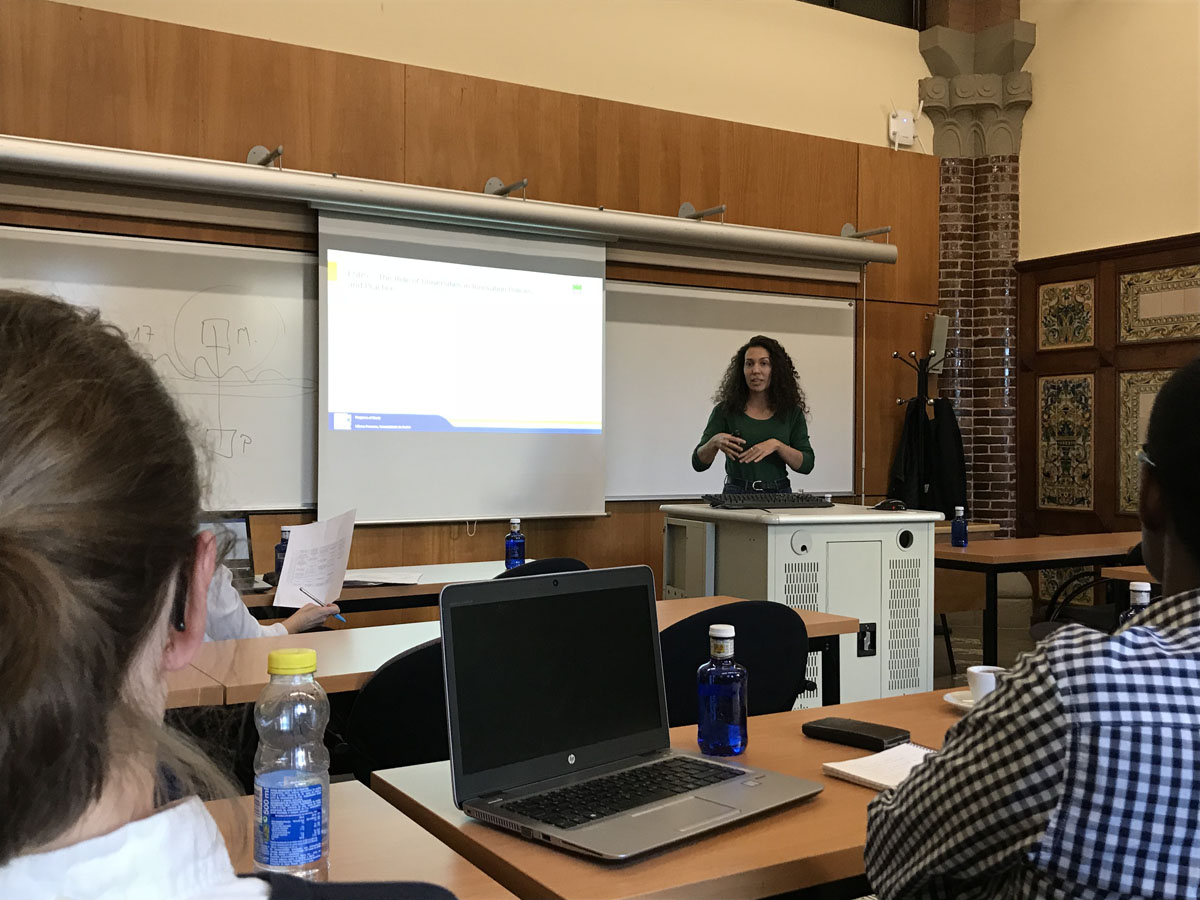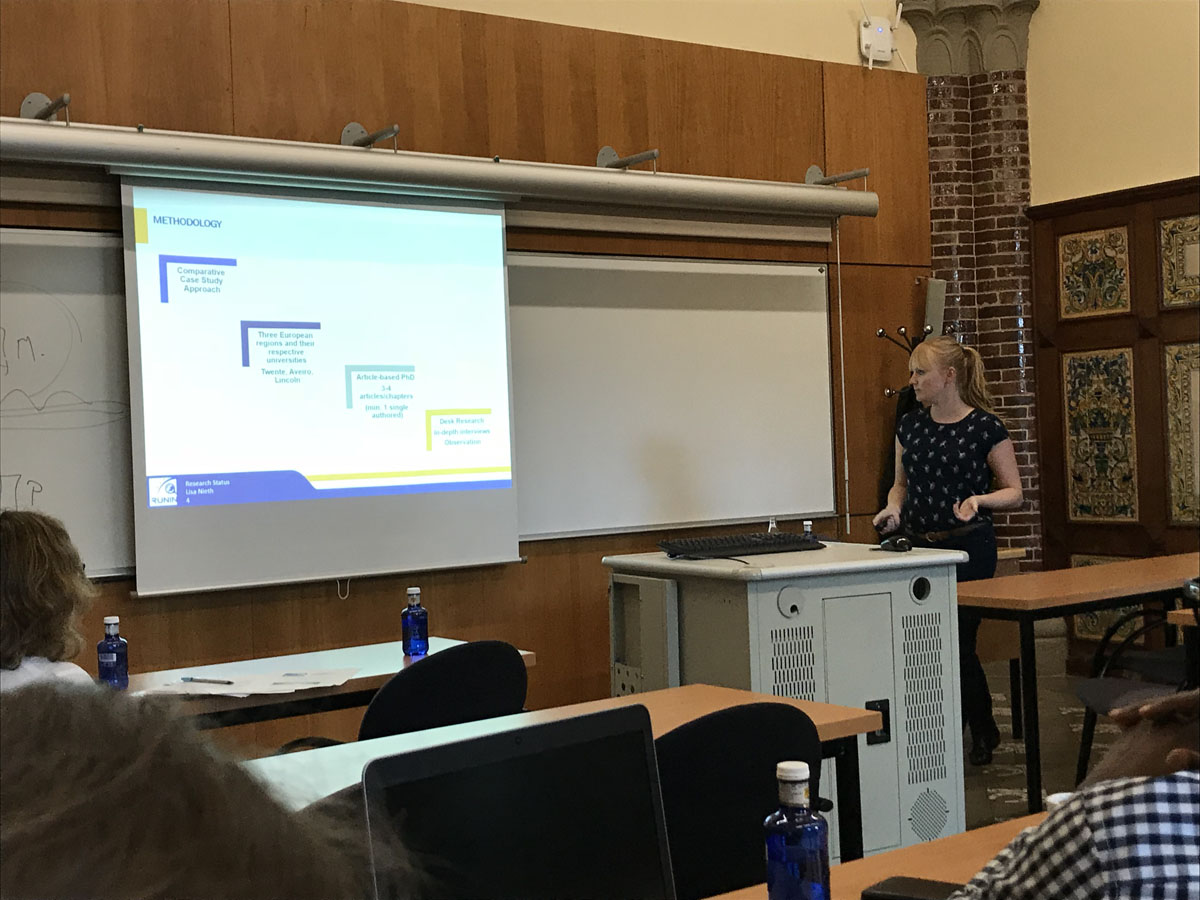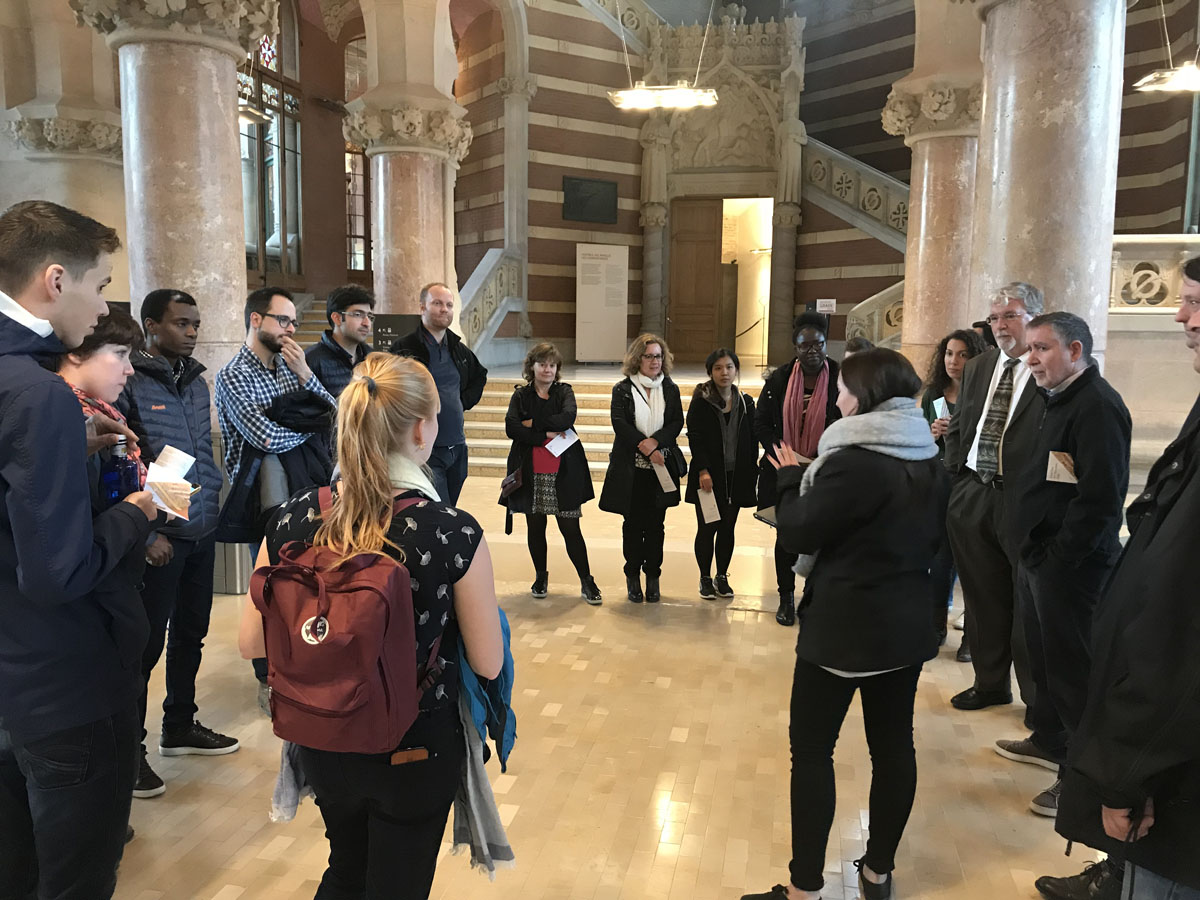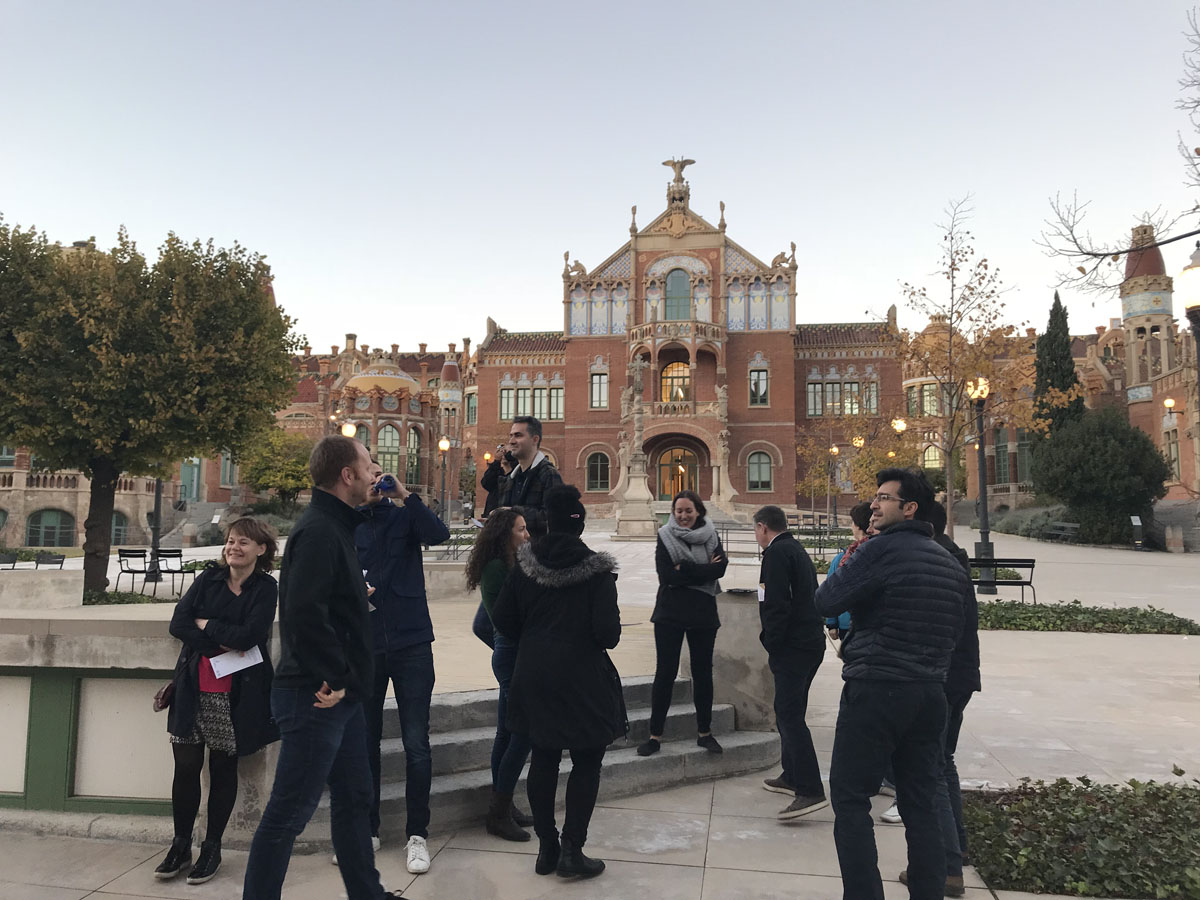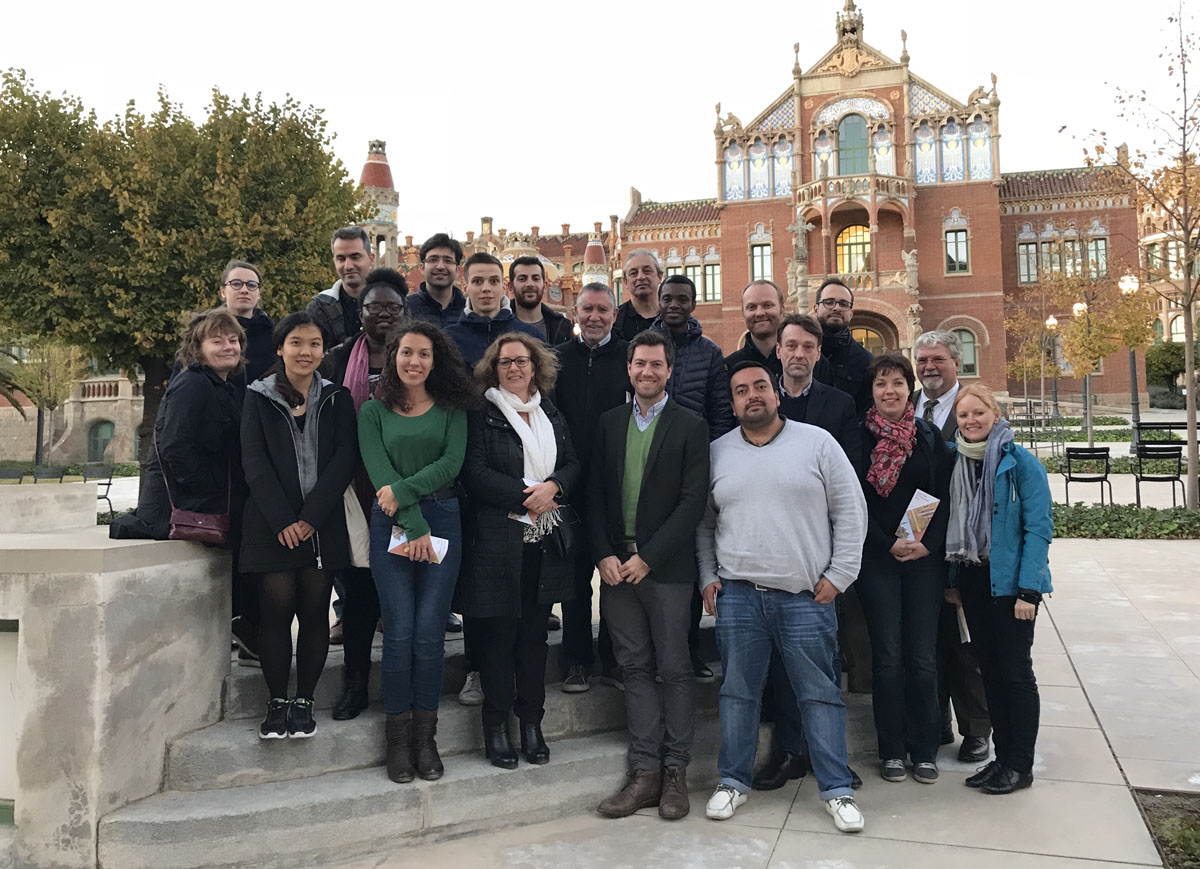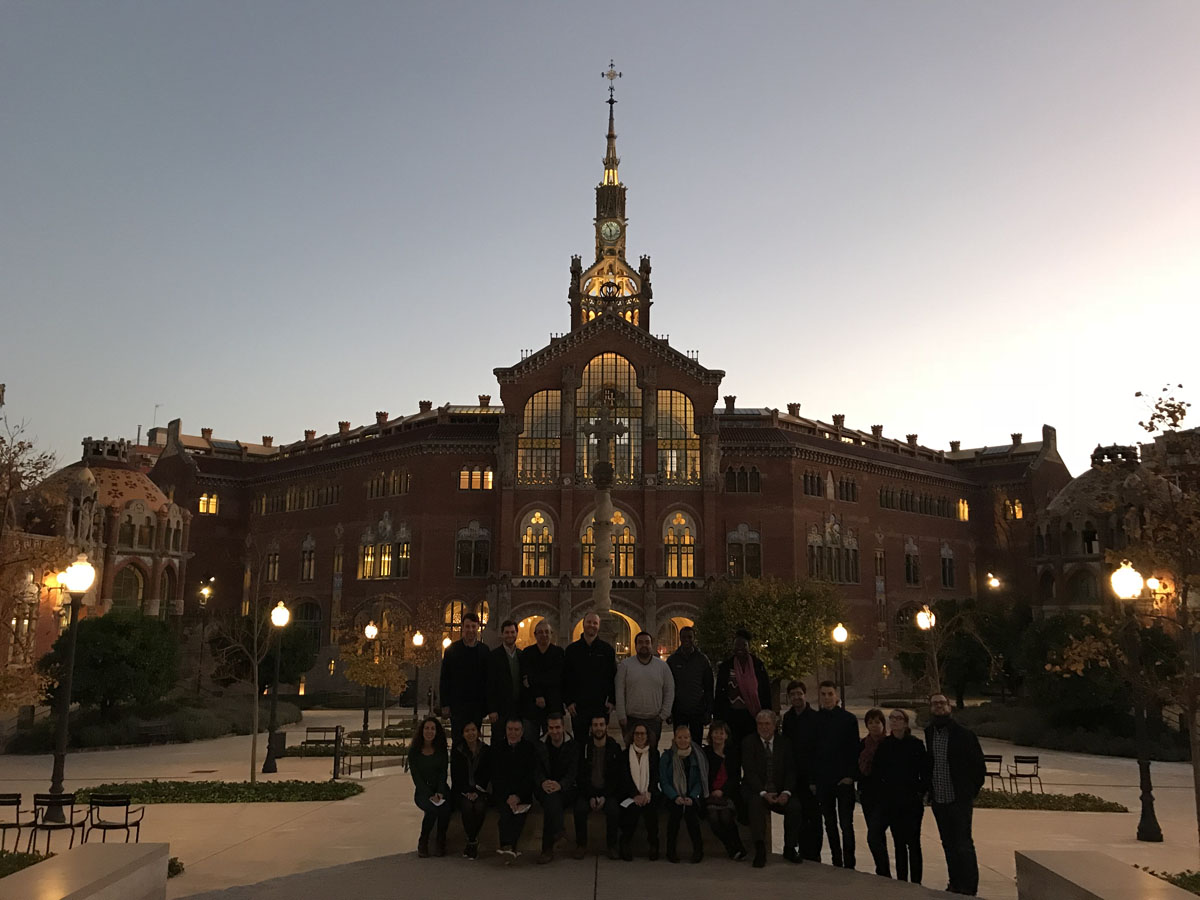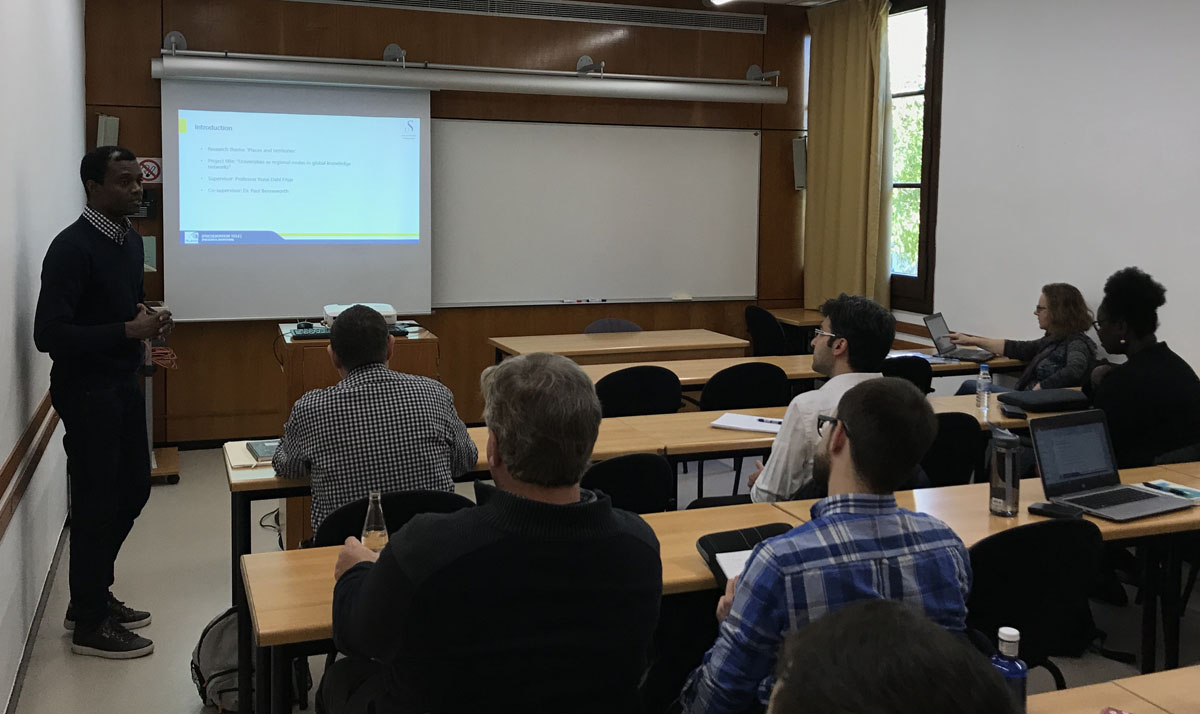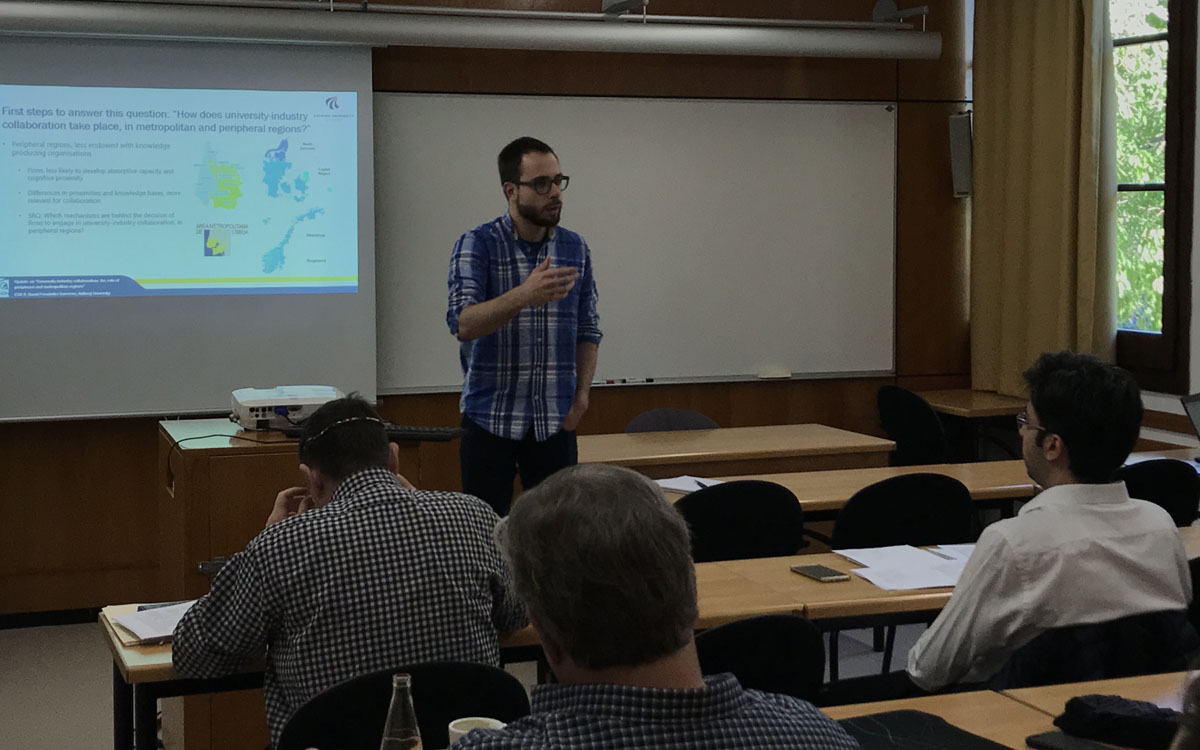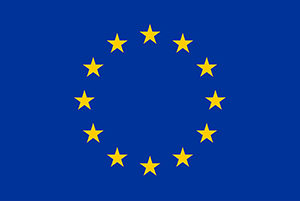From the 13th to the 18th of November 2017, the Universitat Autònoma de Barcelona (UAB) and Professor Emili Grifell-Tatjé was the host of the third RUNIN training week and Autumn school. Our early stage researchers (ESRs) and supervisors gathered at the UAB Casa de Convalescència to learn more about ‘Entrepreneurship and SME Management’ from the input of esteemed guest speakers working in academia, public policy and the third sector.
On Monday and Tuesday, aside from progress presentations by the ESRs, the main subject under discussion was science-based entrepreneurship. Dr. Pere Condom, director of the project Catalunya Emprèn of the Generalitat’s Department of Business and Employment, presented on the topic of “Policies for Entrepreneurs”, giving an overview of the strategy in place in Catalunya to nurture an innovative and entrepreneurial ecosystem, from infrastructure and funding schemes to networking opportunities. He was followed by Professor David Robinson of Indiana State University, who gave insights on “The Framework to Improve Knowledge Transfer between Universities and Entrepreneurs”. He highlighted a common tension in the dynamic of the relationship between these two actors: one, the university, heavily bureaucratised; and two, the entrepreneurs, characterised by defying norms and pushing boundaries. To alleviate this tension, and facilitate communication, Prof. Robinson underlined the importance of ‘boundary spanning individuals, those who due to their background and/or social network can more easily connect the two spheres.
The afternoon of Tuesday was booked with visits to the main UAB campus, in Cerdanyola del Vallès; a visit to the Research Park of the UAB, led by the Managing Director Dr. Carlos Valero; and finally, a visit to the ALBA synchrotron. By going to these facilities, the RUNIN academic community had the opportunity to explore UAB’s innovation structure, as well as share experiences and extend their network.
Wednesday and Thursday’s guiding theme was social entrepreneurship as well as methodology training. UAB’s Assistant Professor Miguel García-Cestona was began by speaking on “Corporate Governance, Innovation and the Role of Universities”. He was followed by Gijsbert Huijink, social entrepreneur and creator of the sustainable energy cooperative ‘Som Energia’, providing attendees with insights into social innovation. Professor David Robinson also reported on his experience in social entrepreneurialism with Mental Health America, lecturing on the topic “Innovation by Partnering: A Social Service Charity”. In the afternoon and Thursday morning, Dr. Tomislav Rimac illustrated on his research into “Entrepreneurship for Social Change”, in which he helped create the world’s first panel dataset on social enterprises, and “Social Entrepreneurship and Innovation Research Methods”, in which he explained how to approach hard-to-reach populations through a method of respondent-driven sampling.
Professor Francis Greene, an invited speaker from the University of Edinburgh’s Business School, presented Thursday on “Start-up Business Planning”, giving attendees a crash course into the stages and organisation methods in starting a business. He stated that before it all, the rule of the three Ms should be implemented, and three questions must be asked: me or what are my motivations?; money or do I have the resources that I need?; and market or what is my niche?. This enabled a very stimulating brainstorming session. The afternoon carried on with a fieldtrip to Ampans in Urpina, a social and local private organization for mentally handicapped people, that is a paradigmatic example in the region of social entrepreneurship. Another case-study was visited in the afternoon, and that is the Alicia Foundation, a research centre dedicated to cuisine and nutrition that combines research private and community services.
On Friday, the Autumn school ended on the topic of SME management, with a presentation by the Eri Vázquez of the Knowledge Innovation Market Foundation (KIM), that seeks to stimulate open innovation and the knowledge-economy in the region. Professor Francis Greene finalised the series of lectures with a policy workshop on self-employment and job quality, engaging the audience by sharing his experience in consulting for the OECD, something that our ESRs may end up doing in the future.
The week ended with a group discussion on the lessons taken from the training, with a sense of accomplishment and a feeling of curiosity and enthusiasm for our next meeting.


